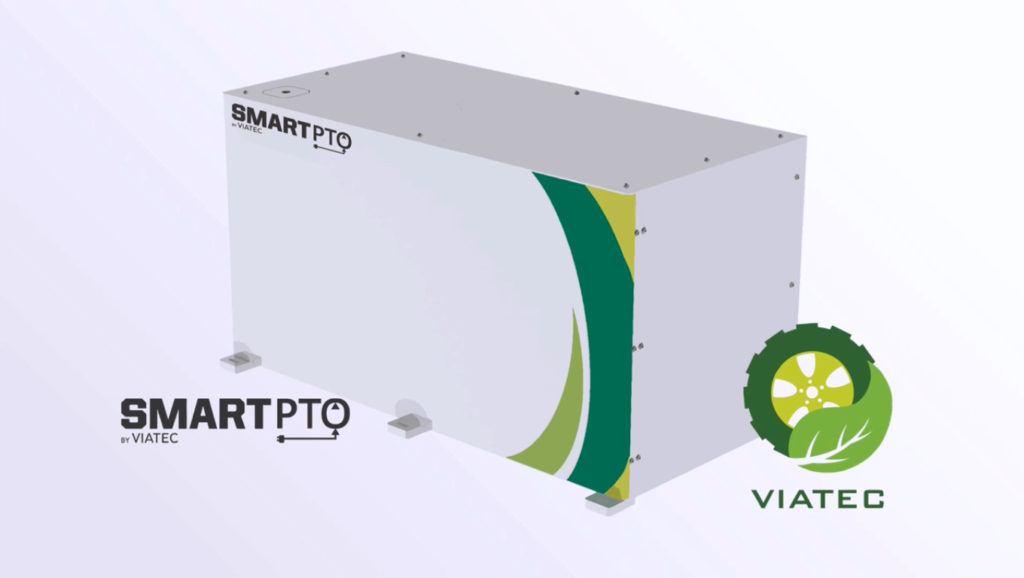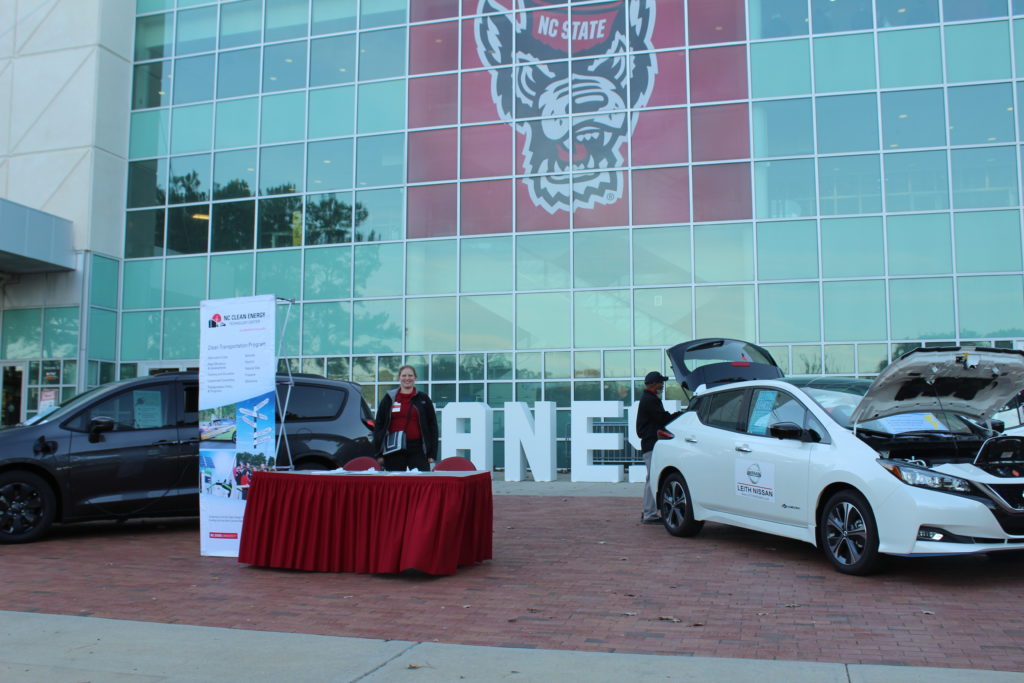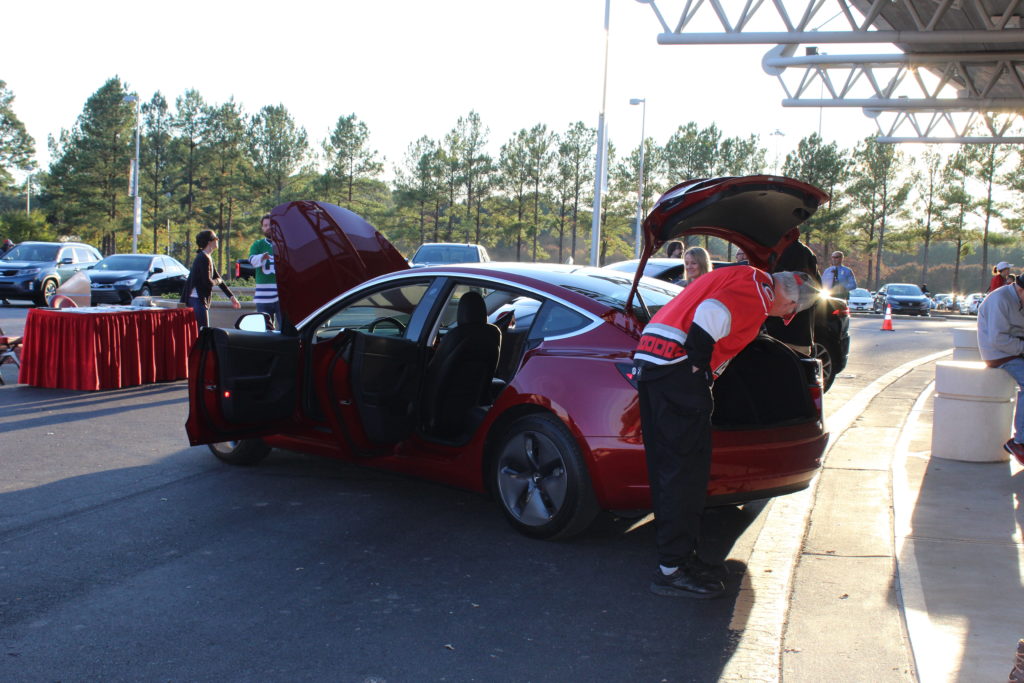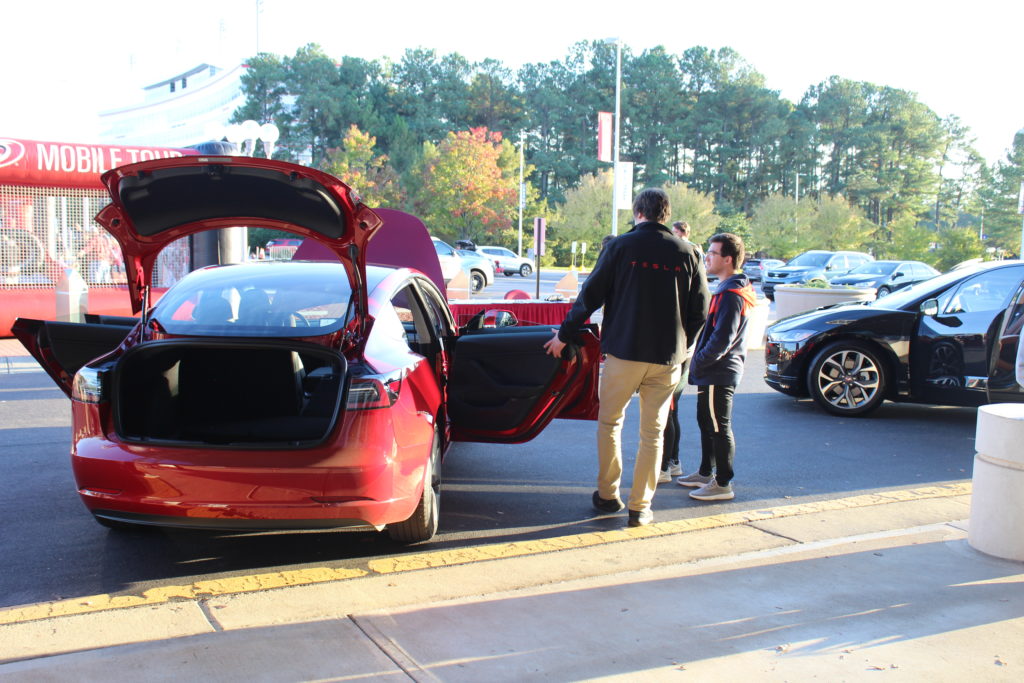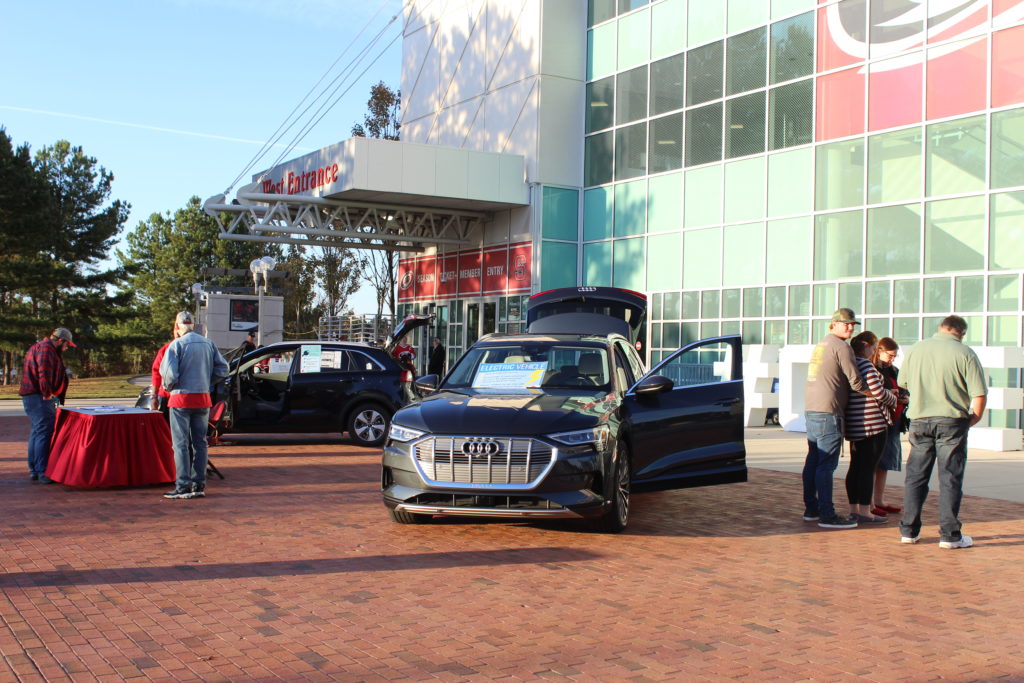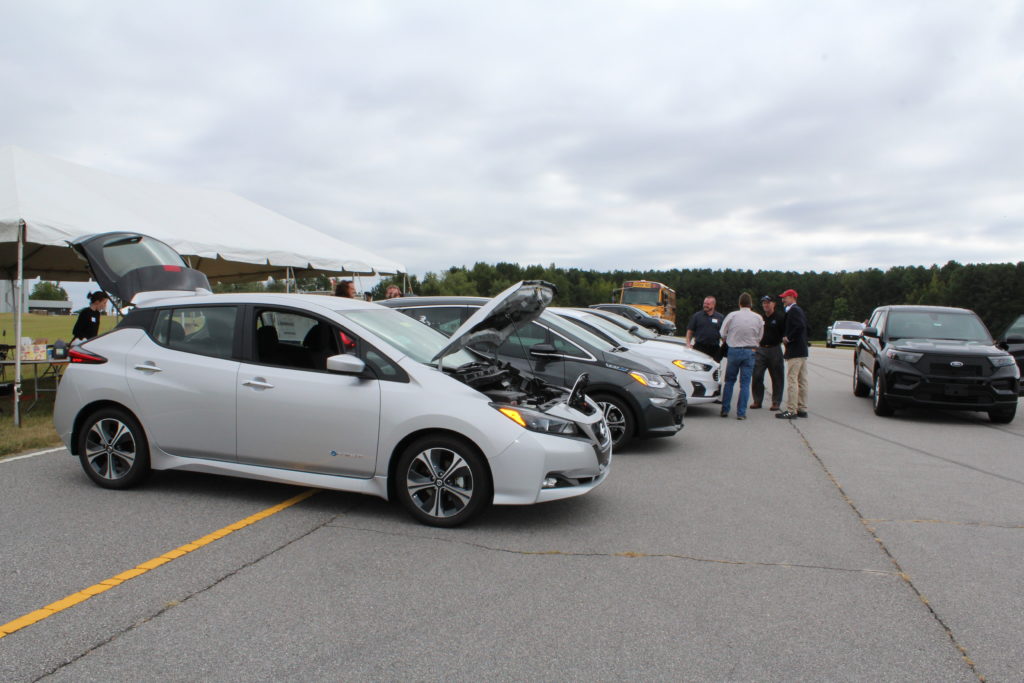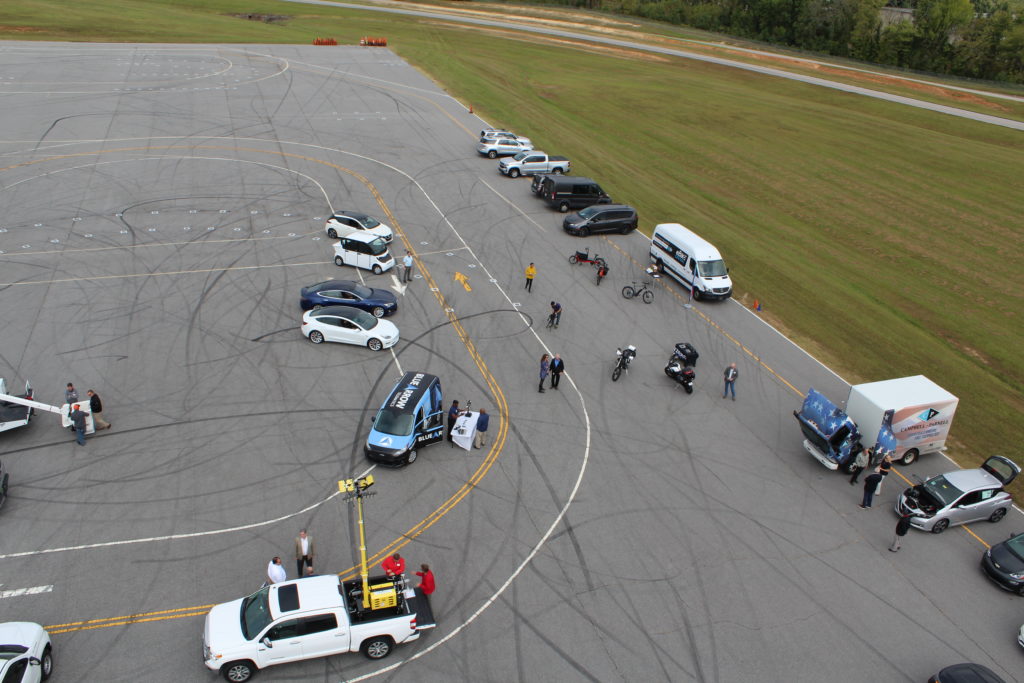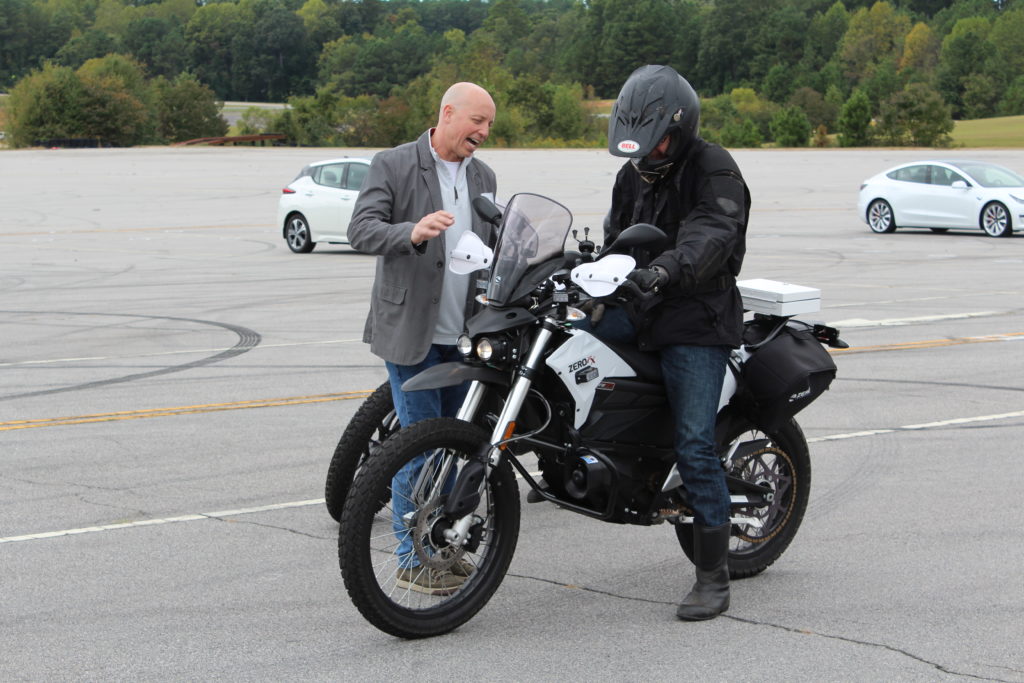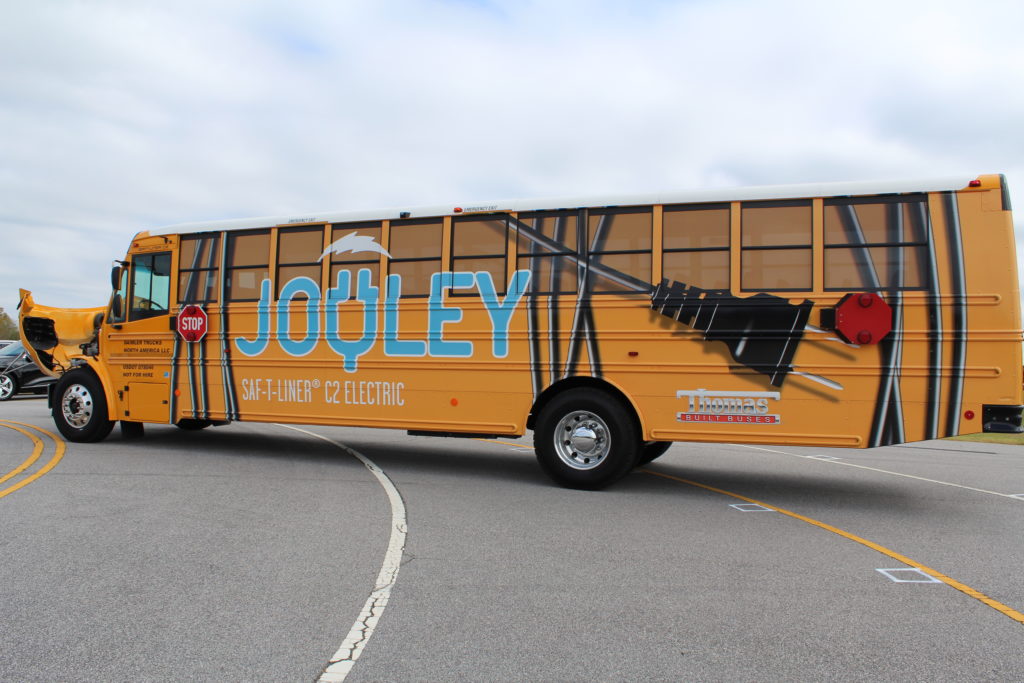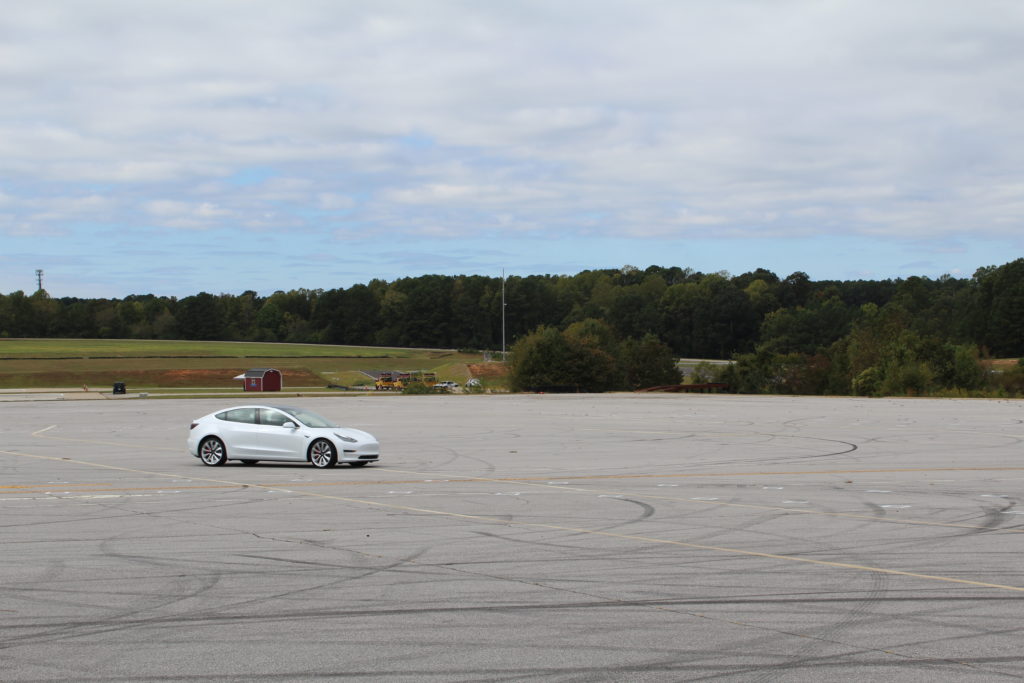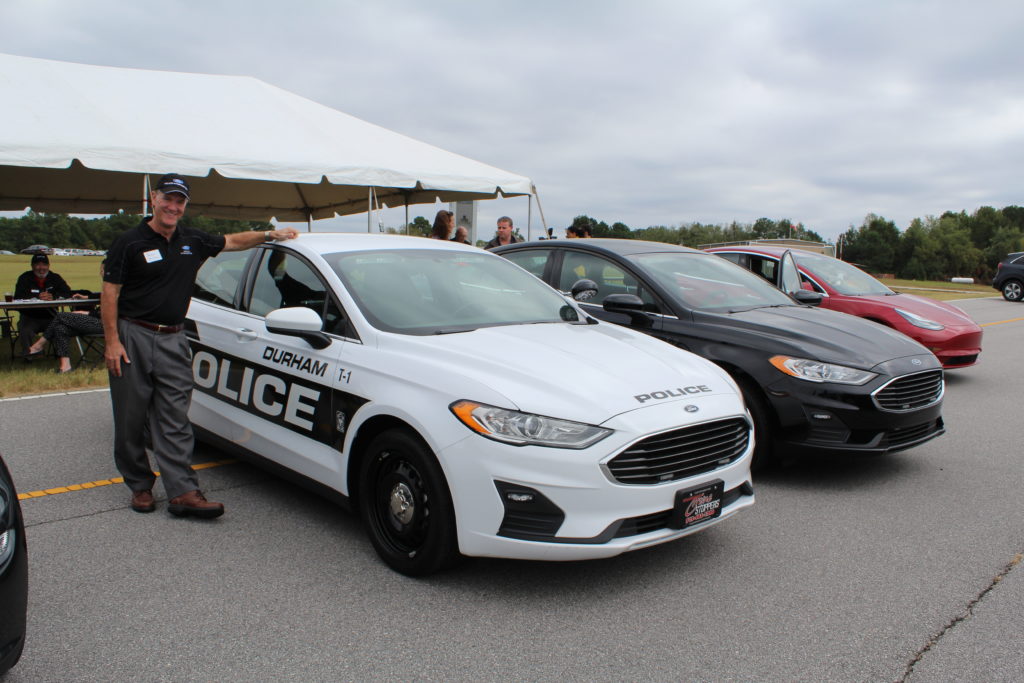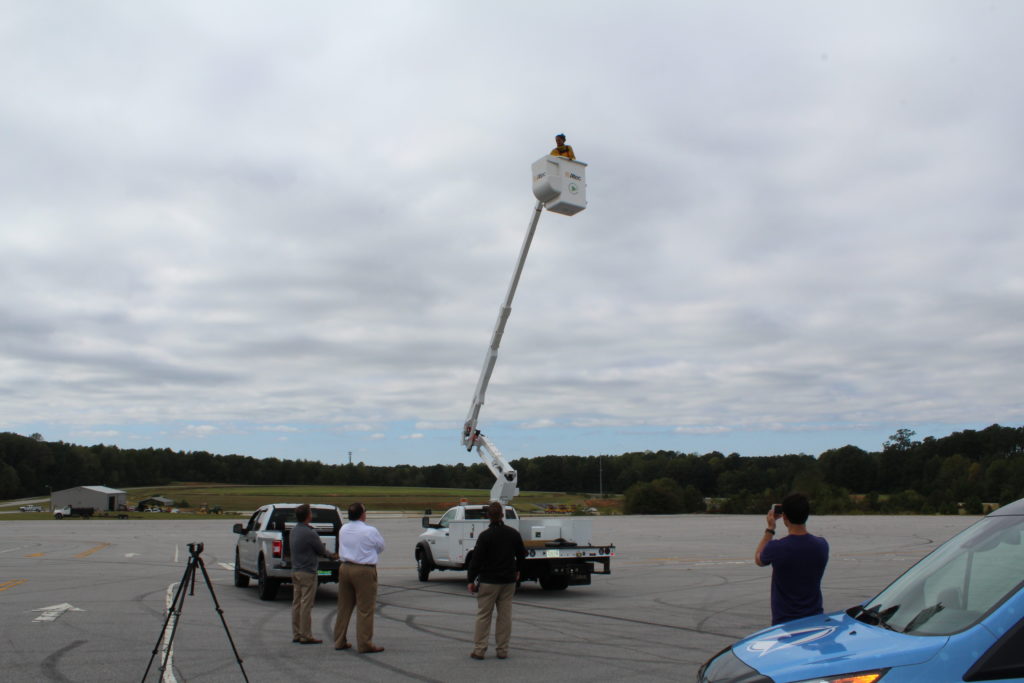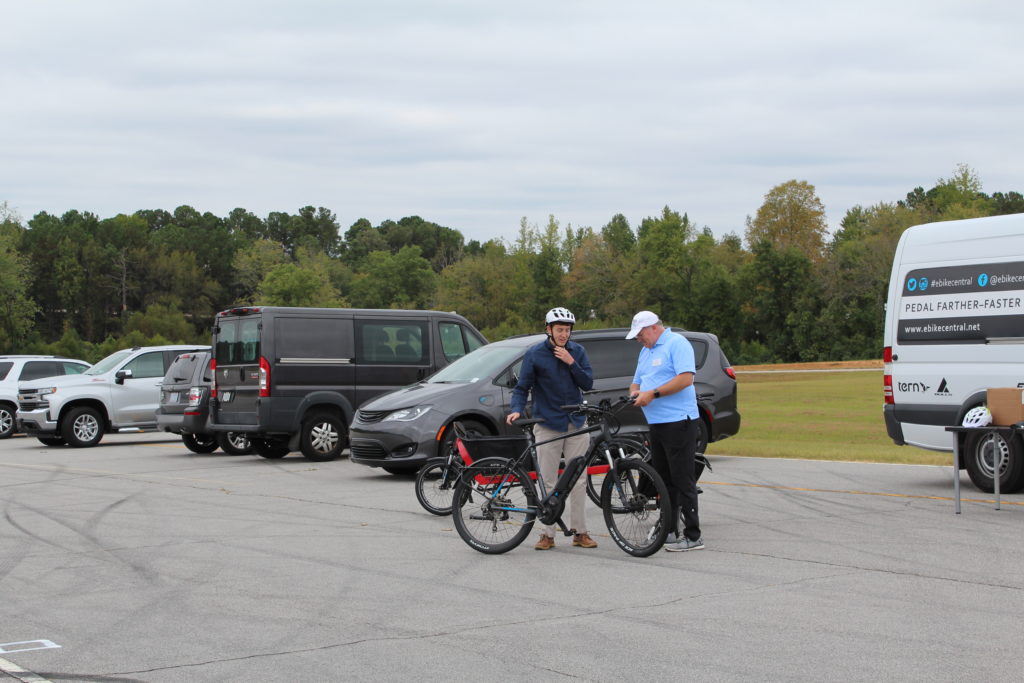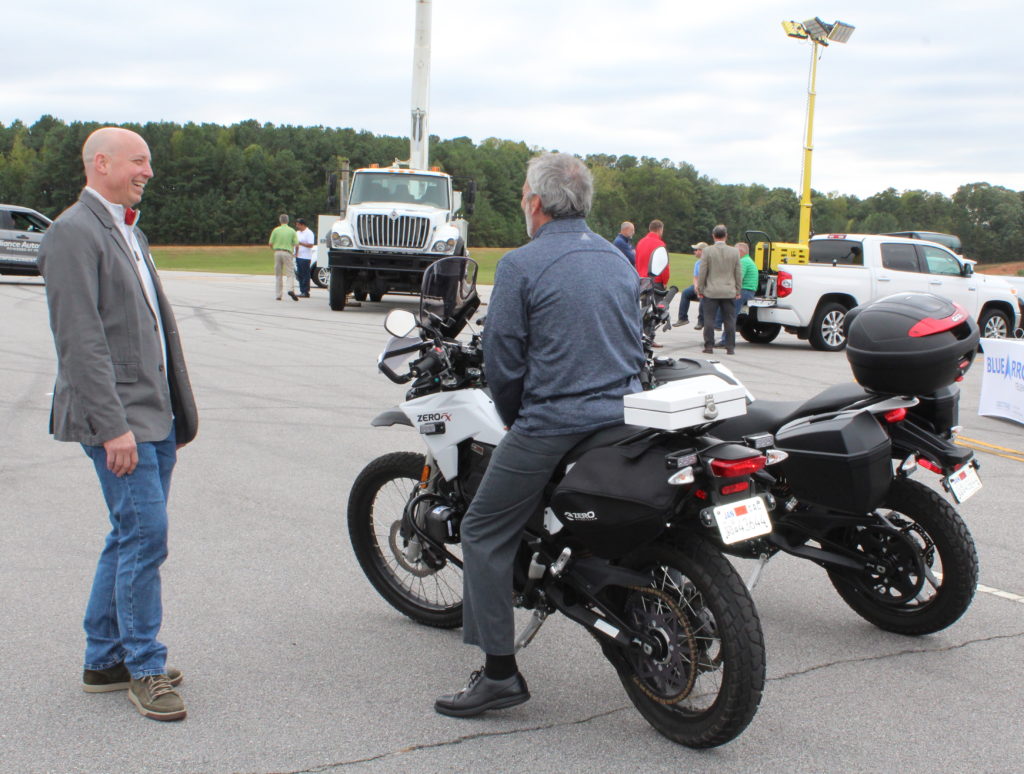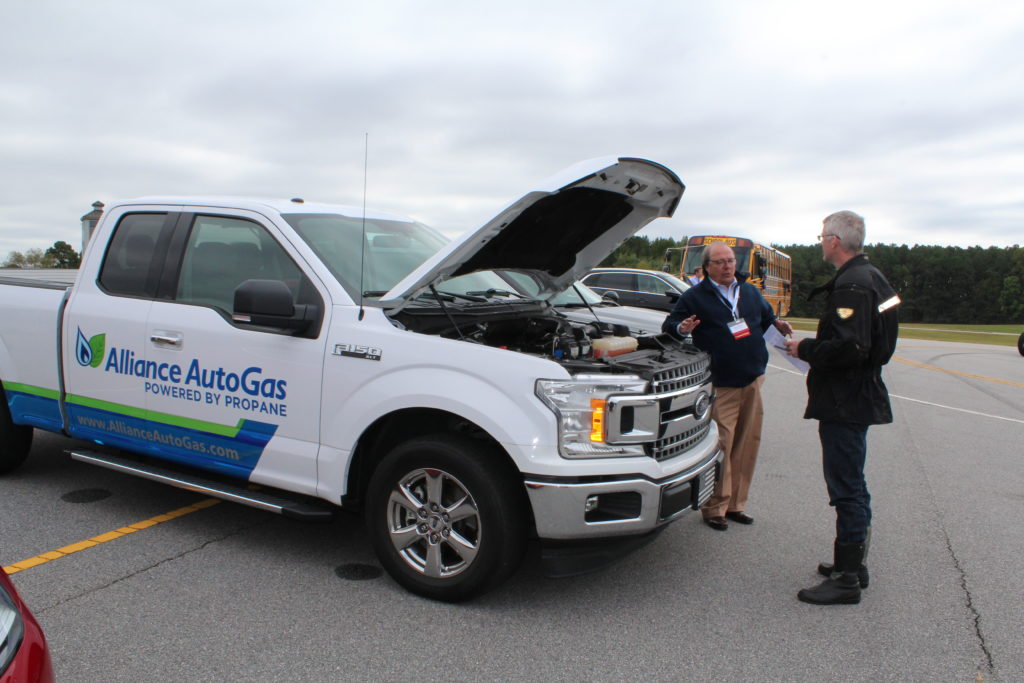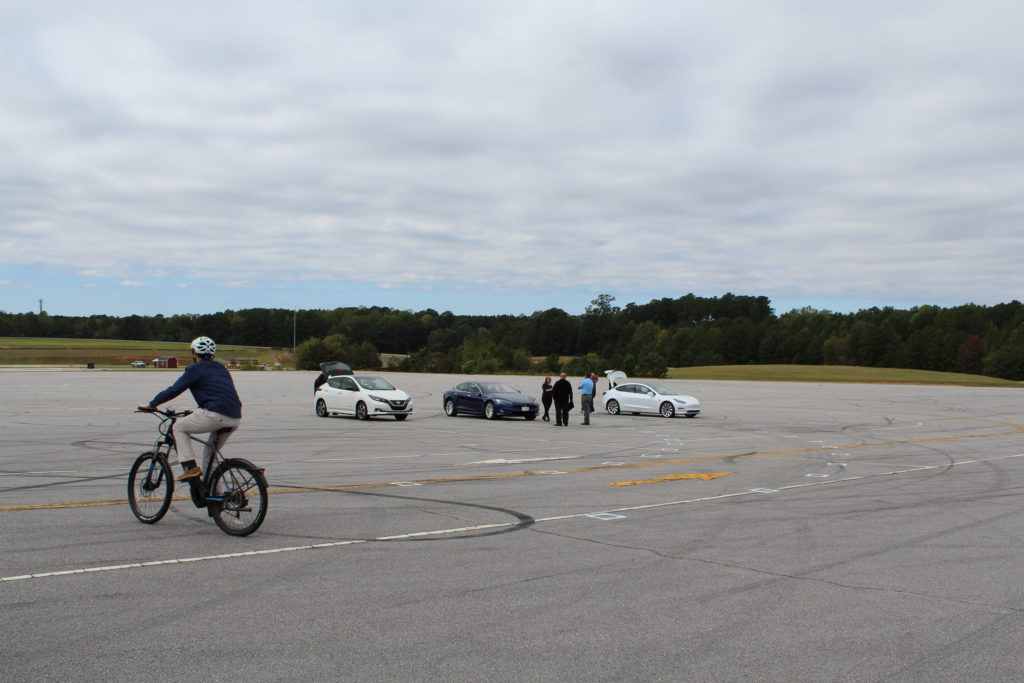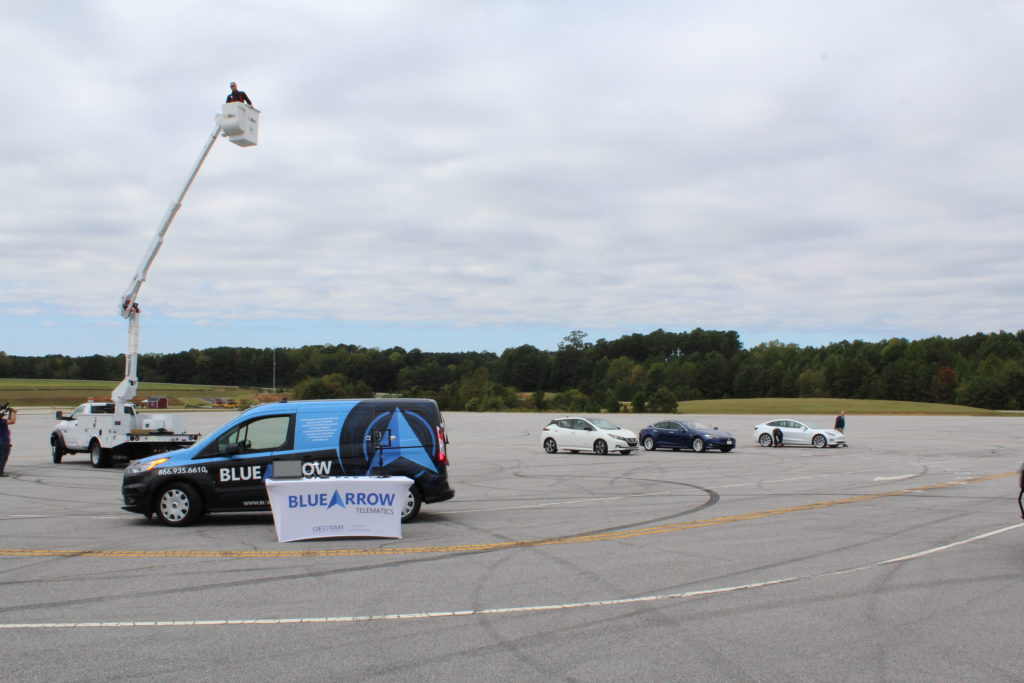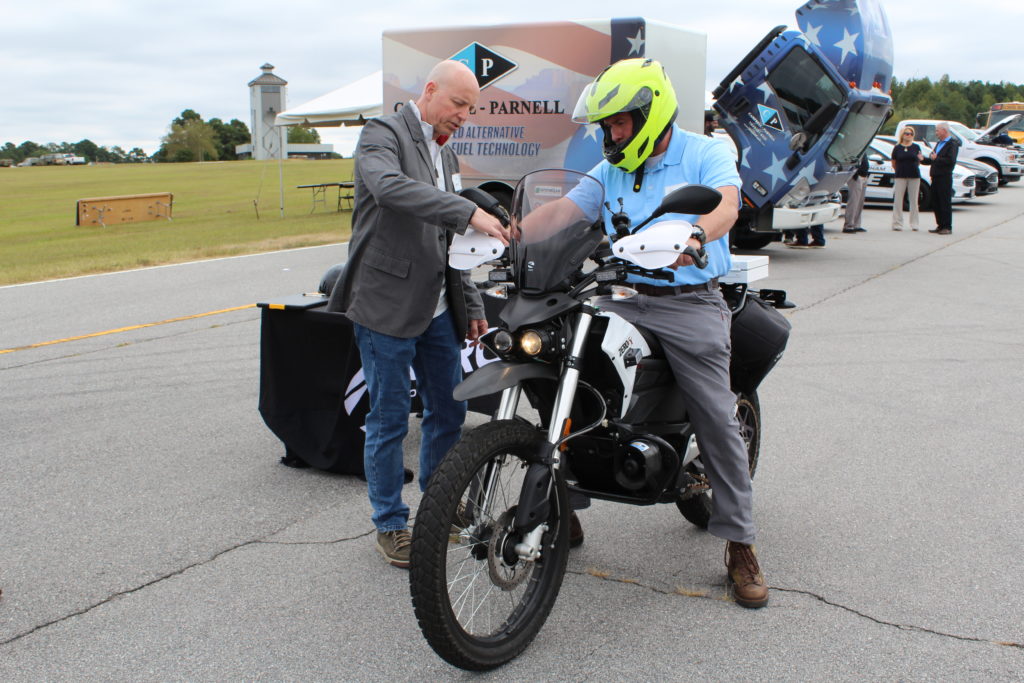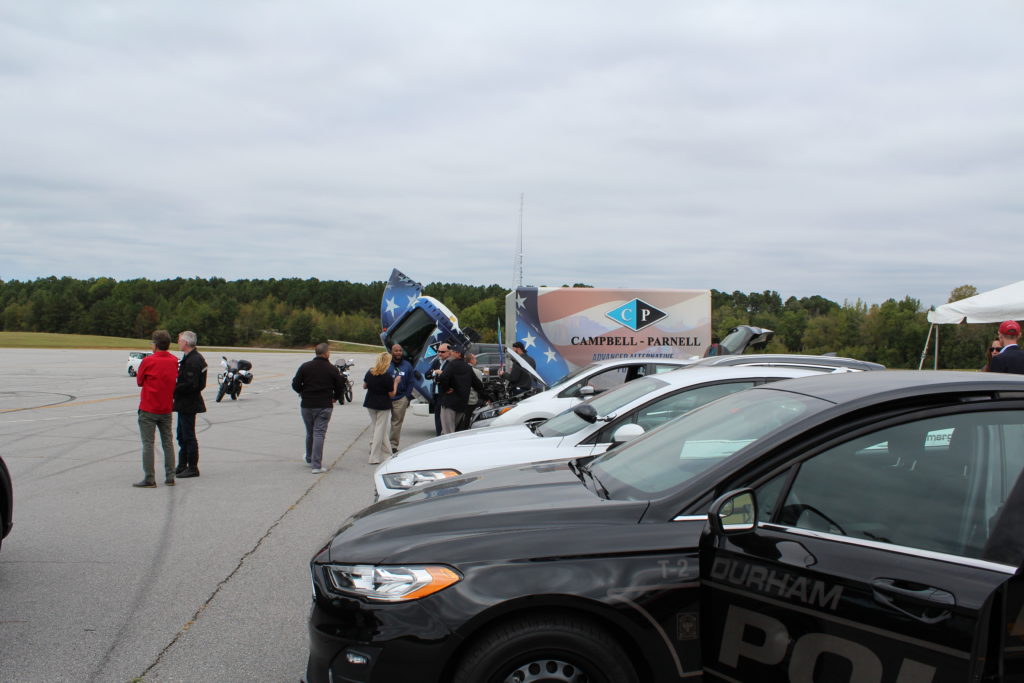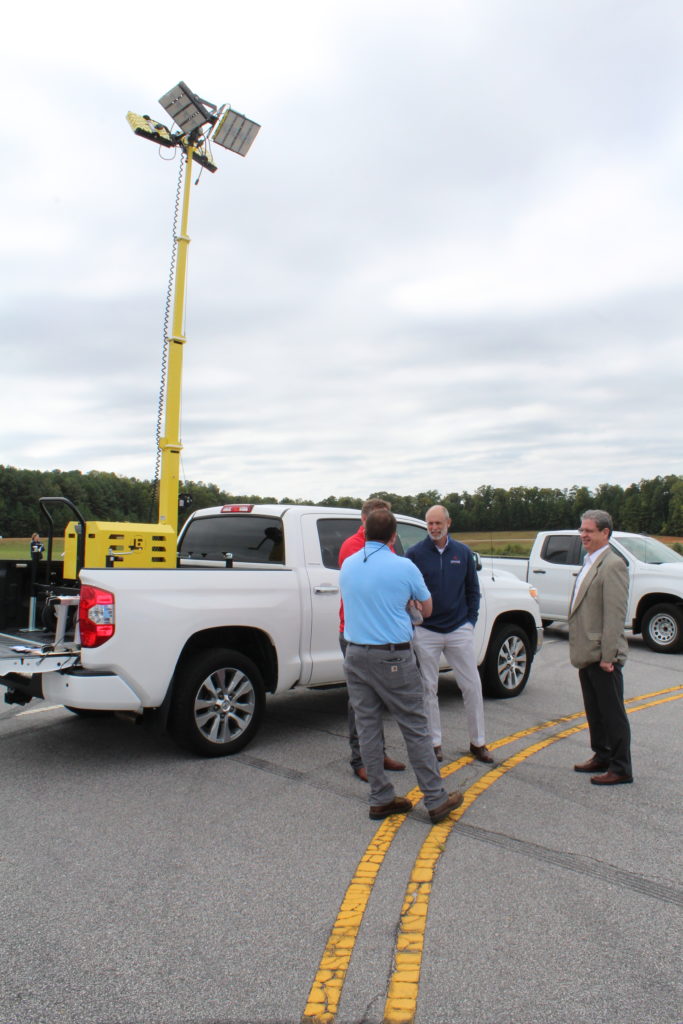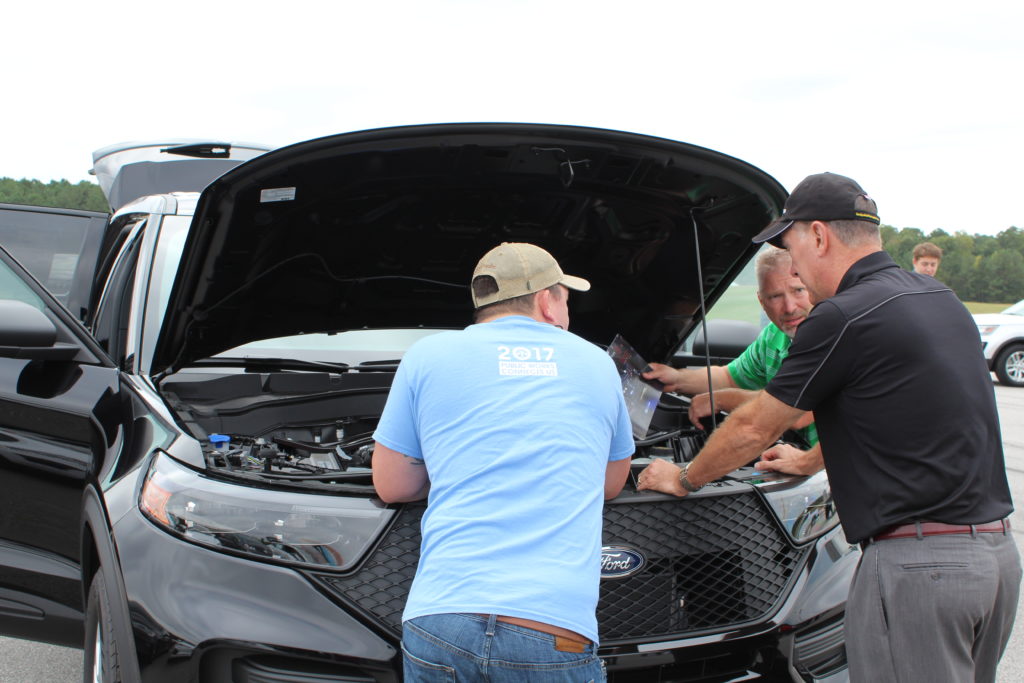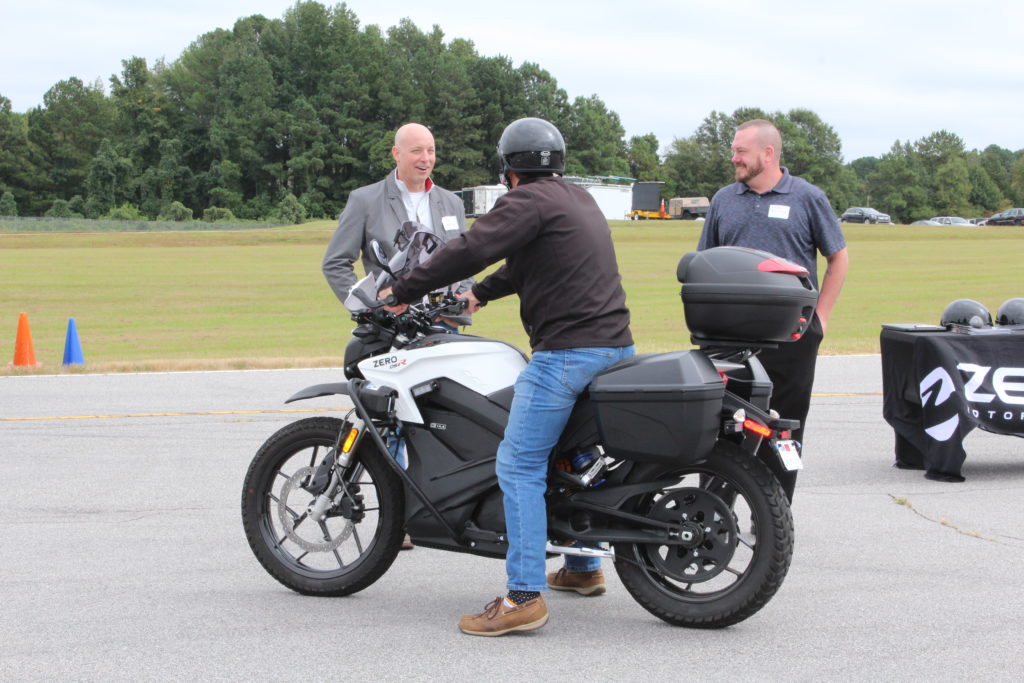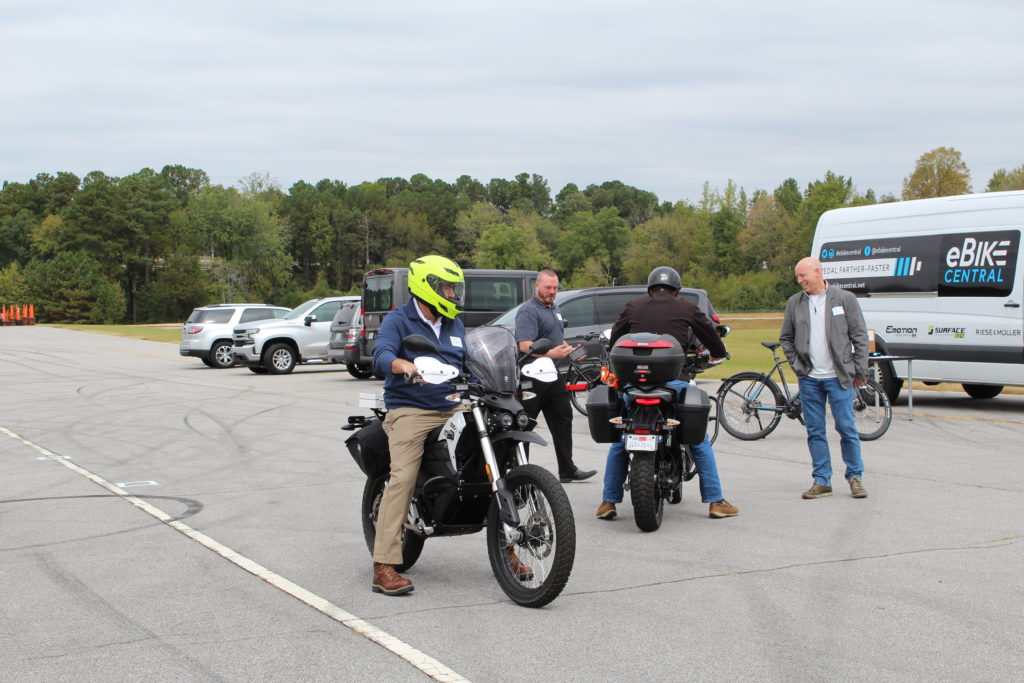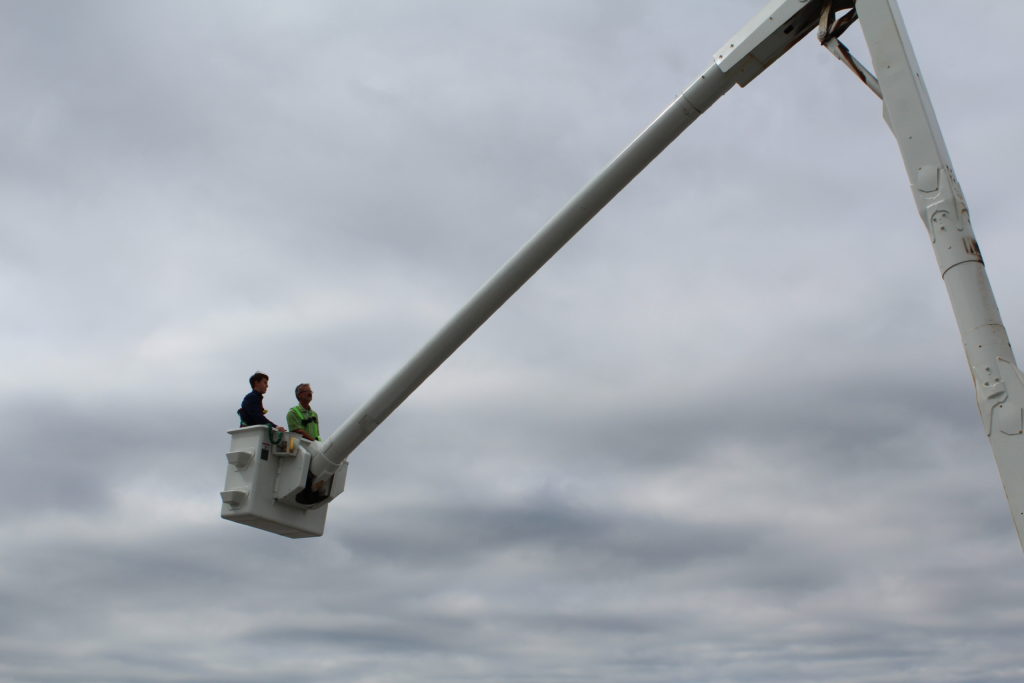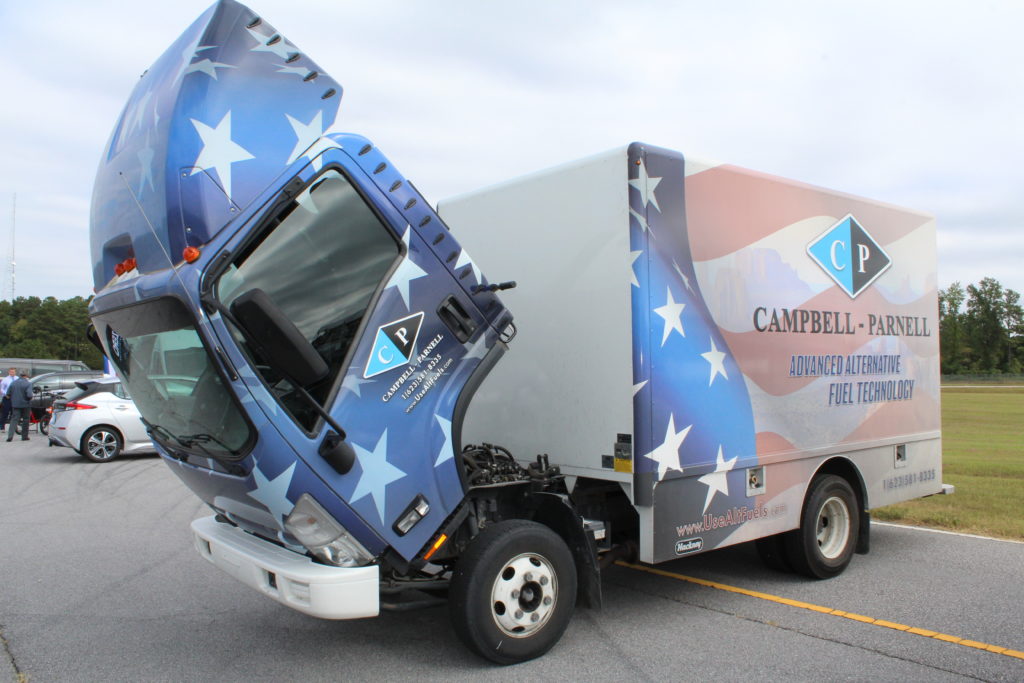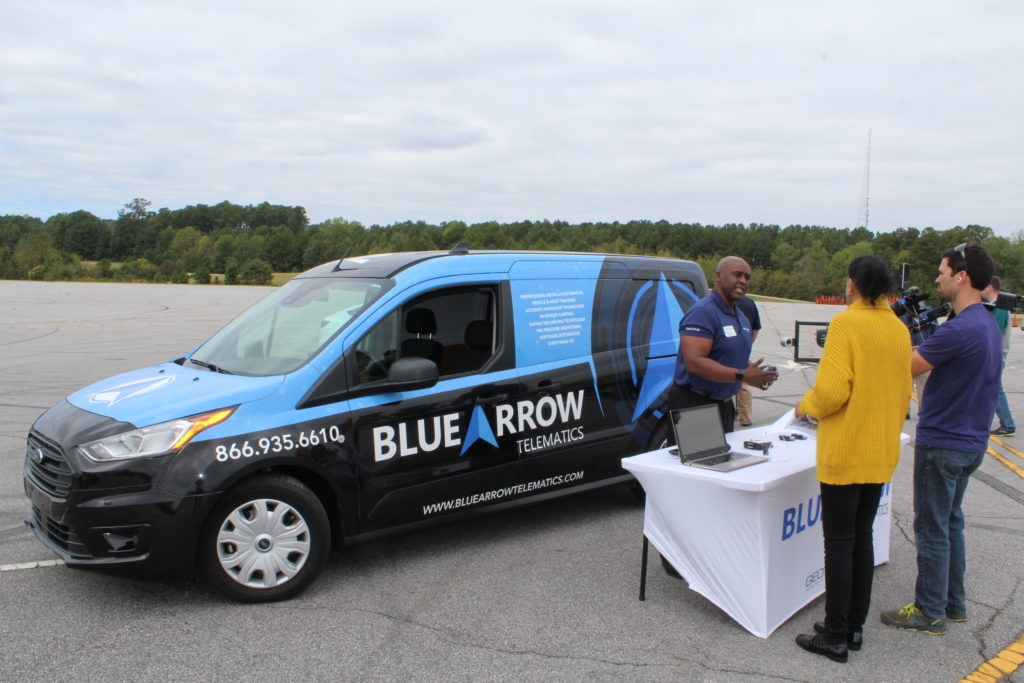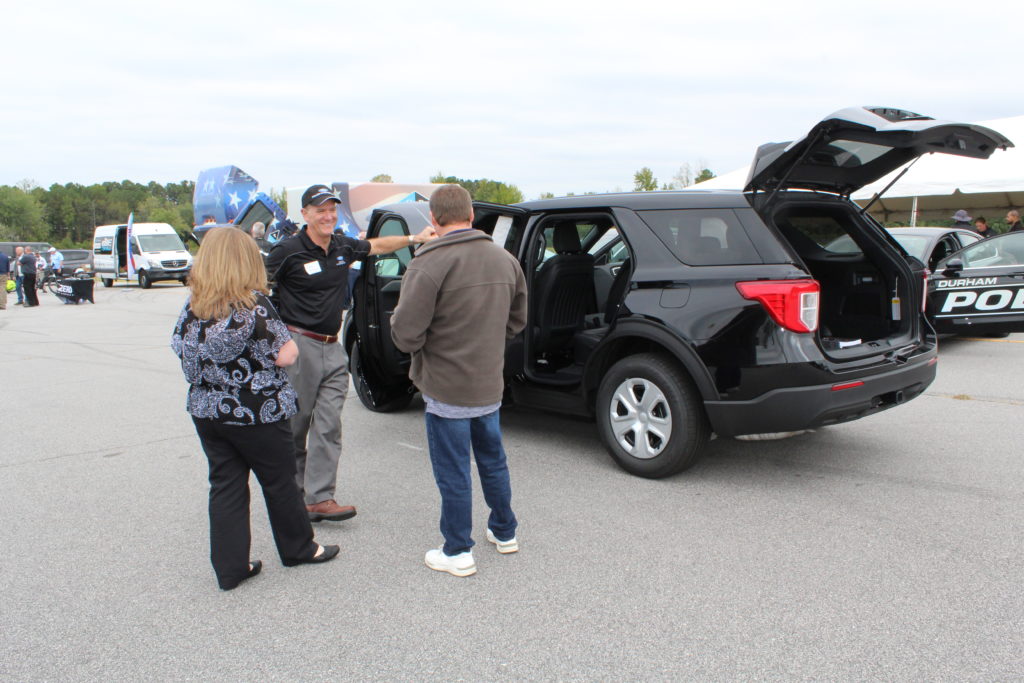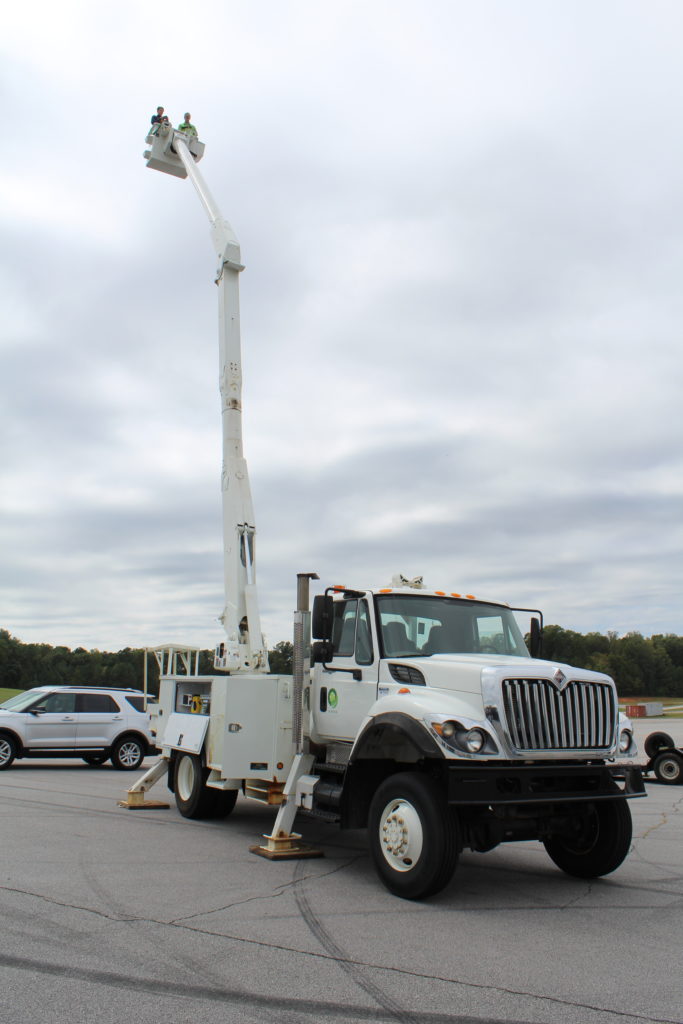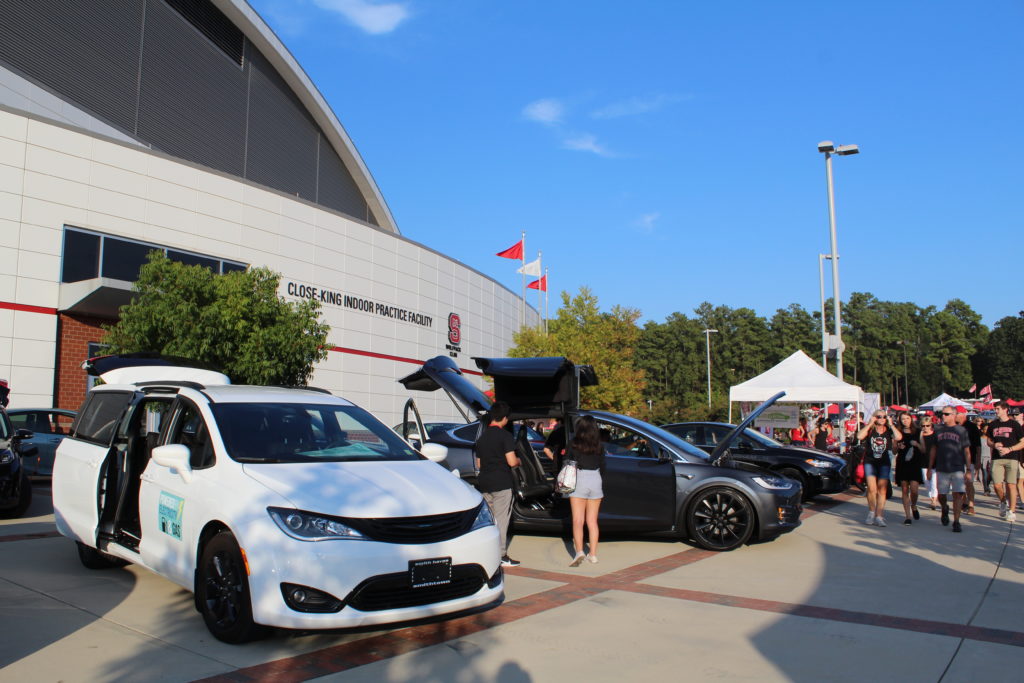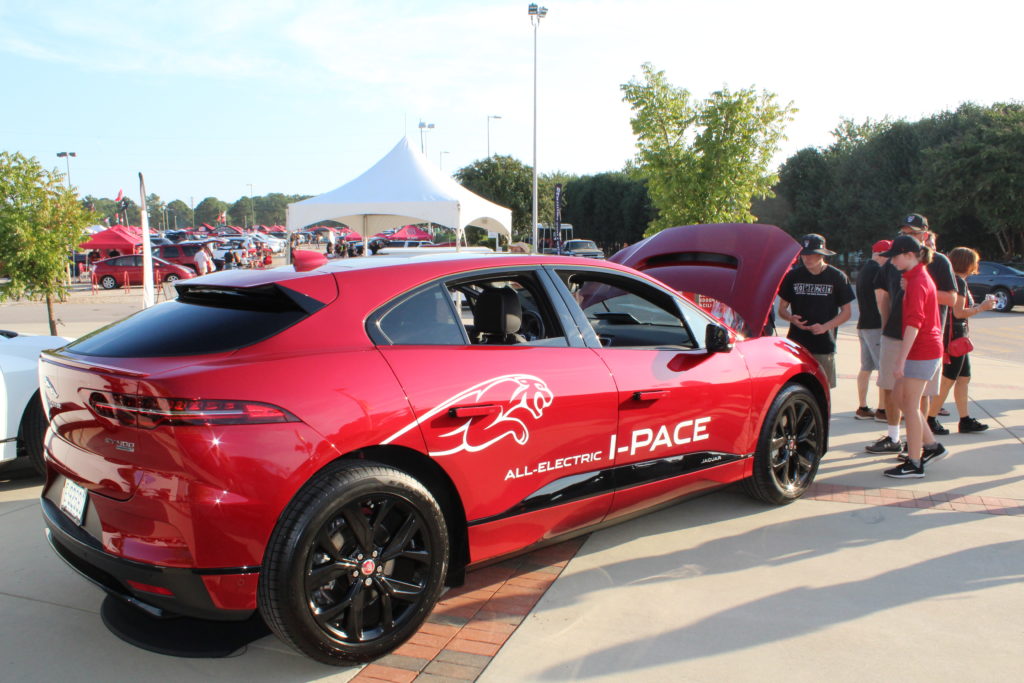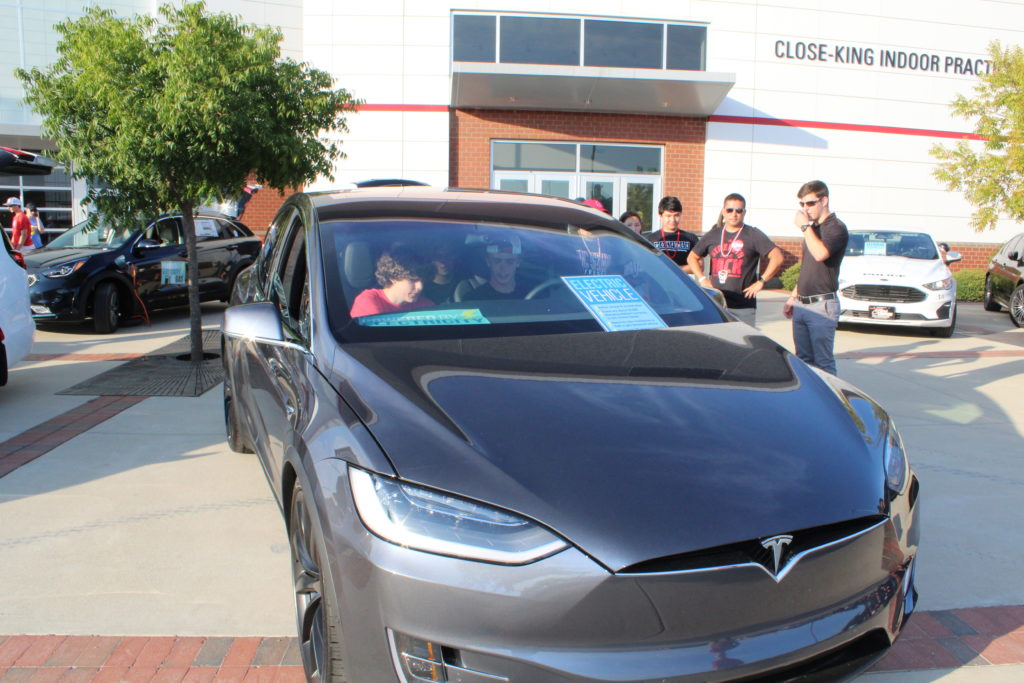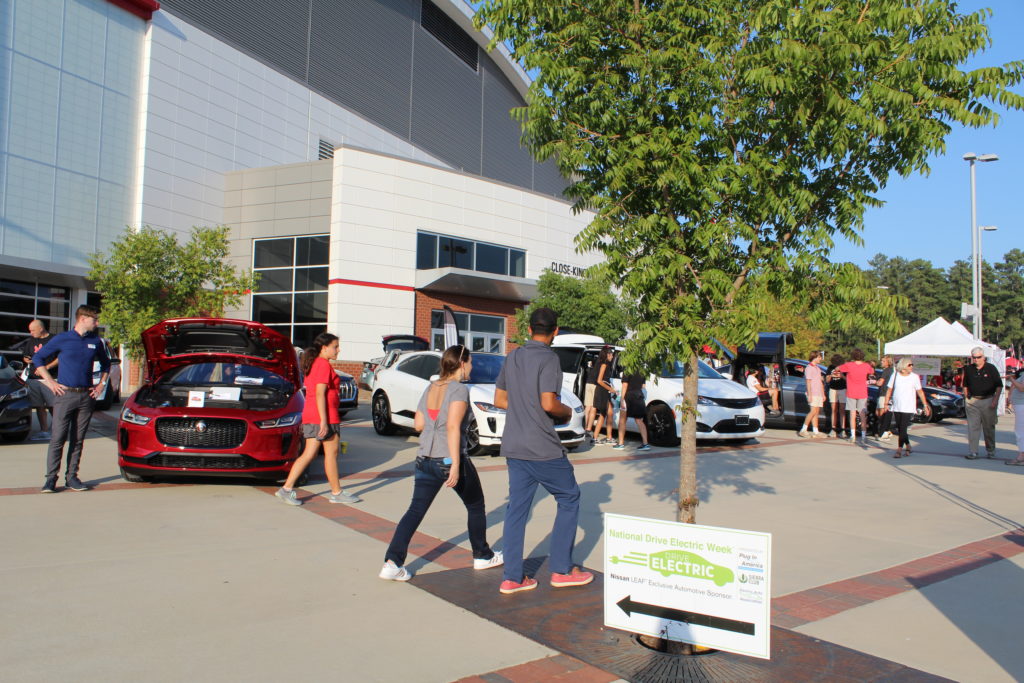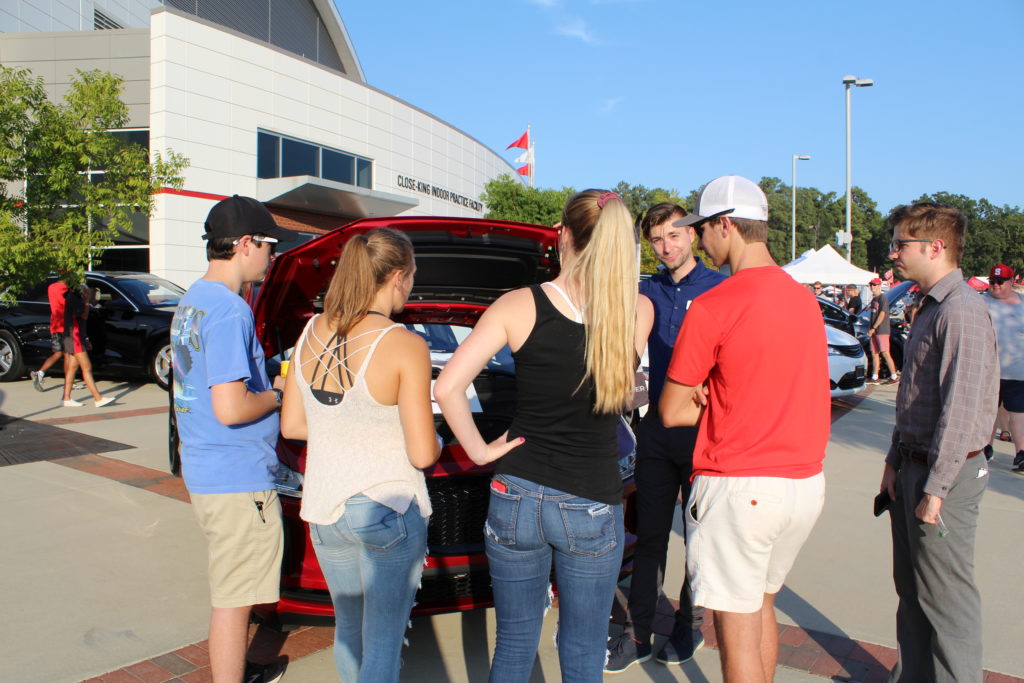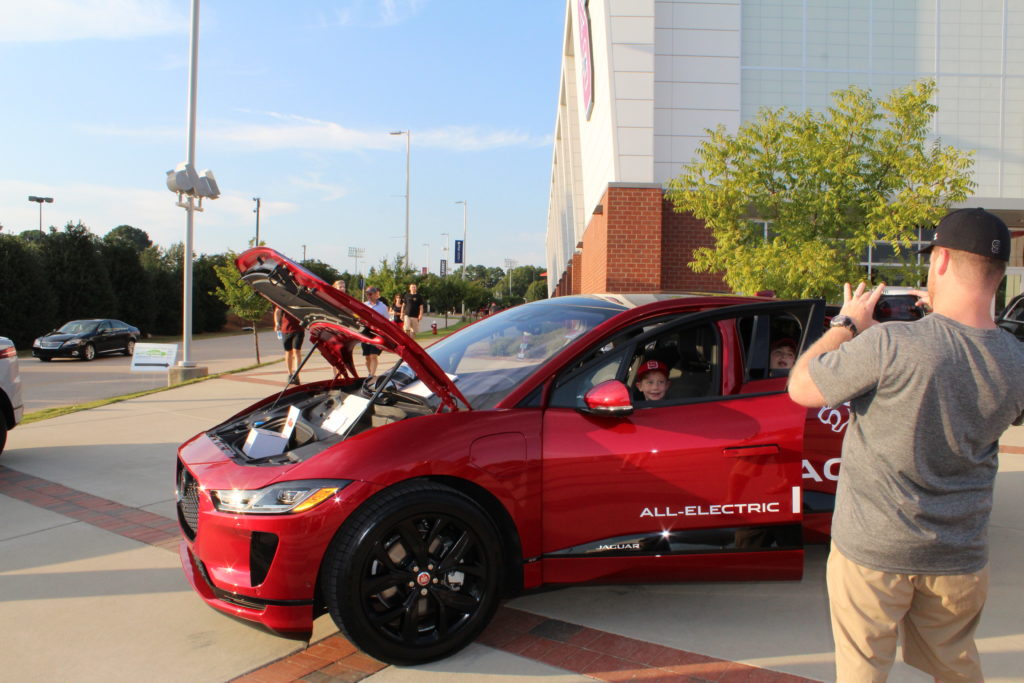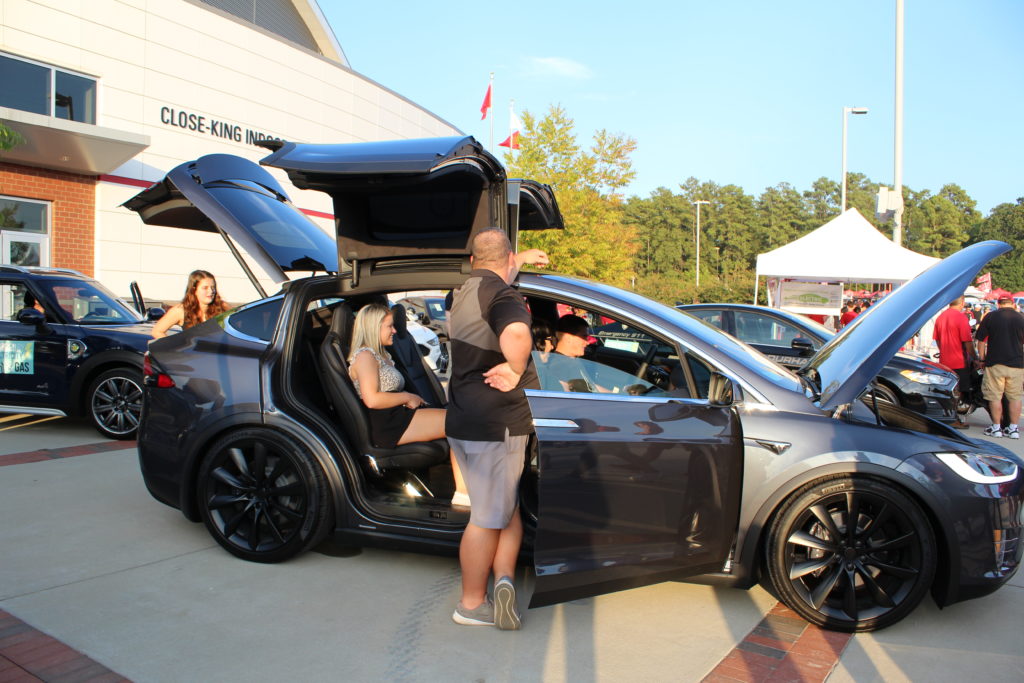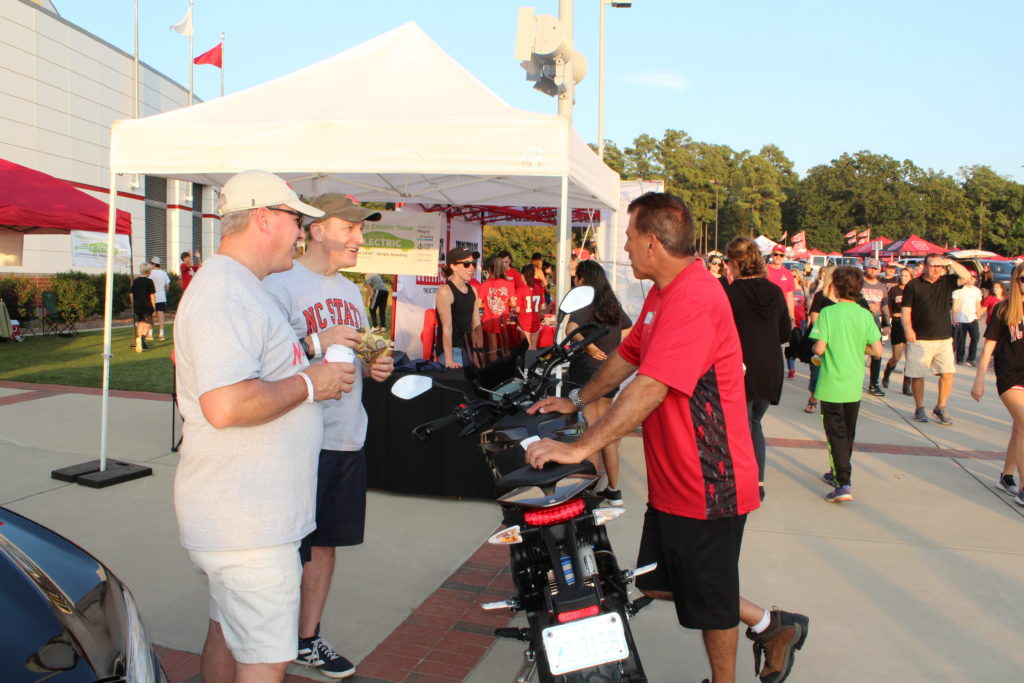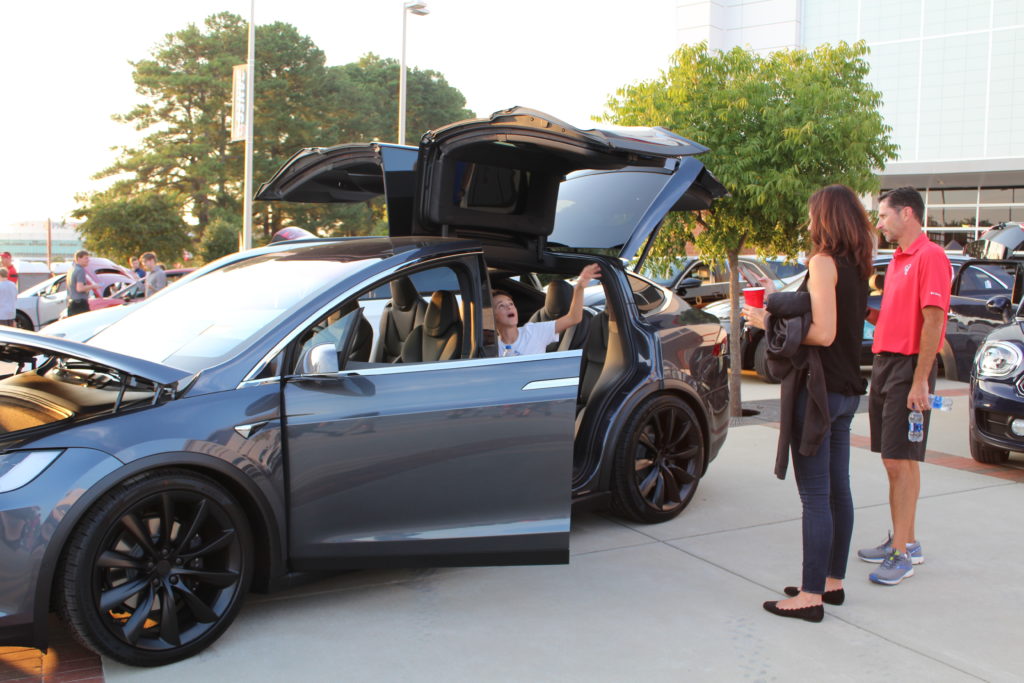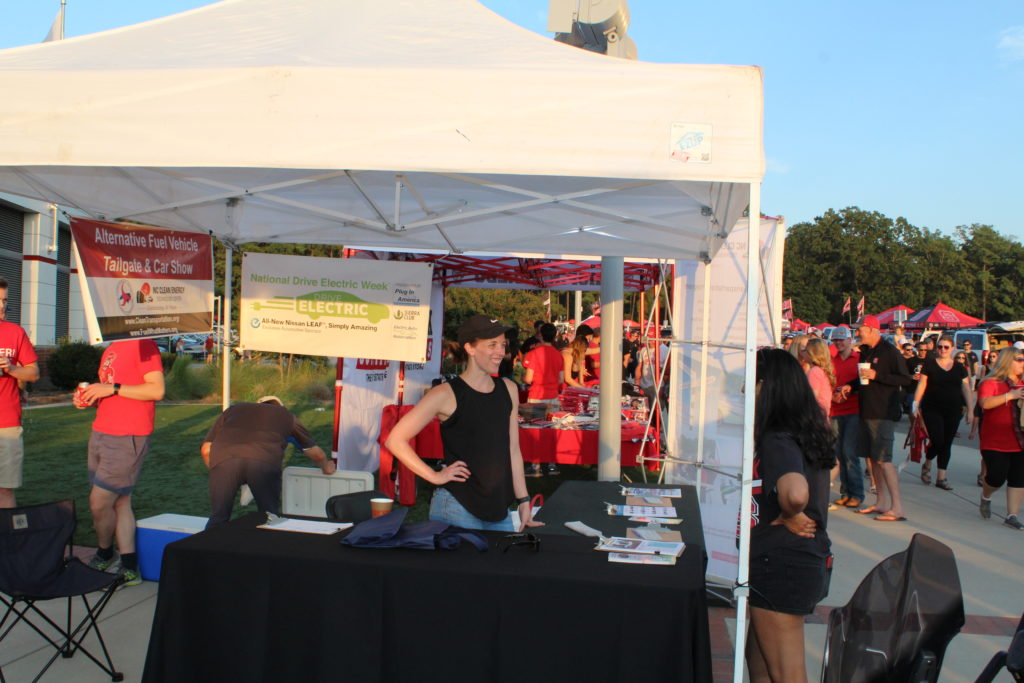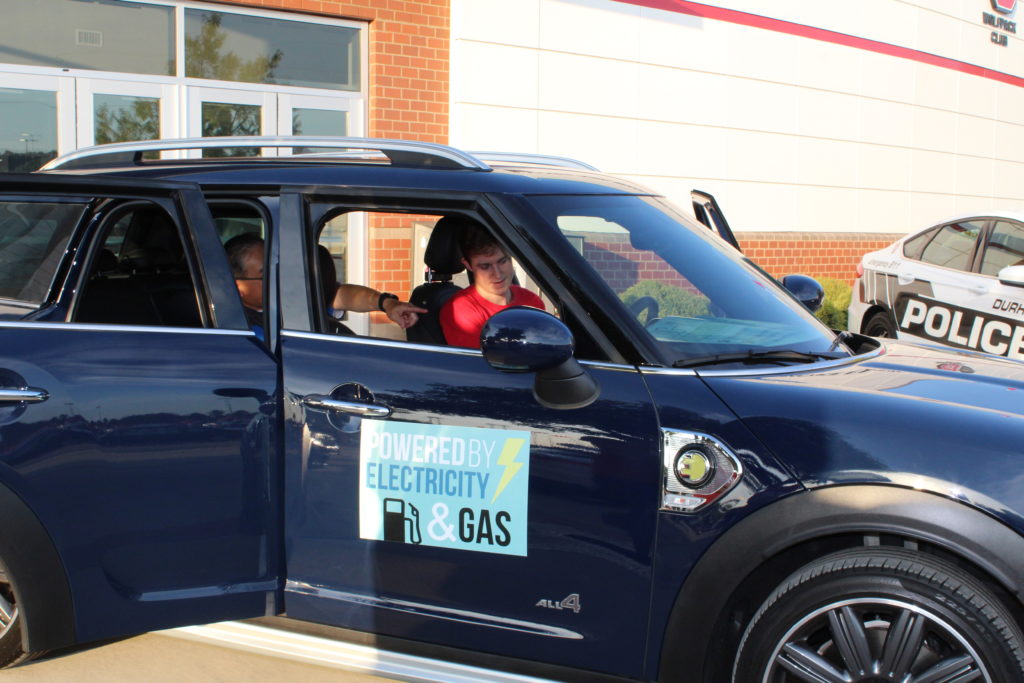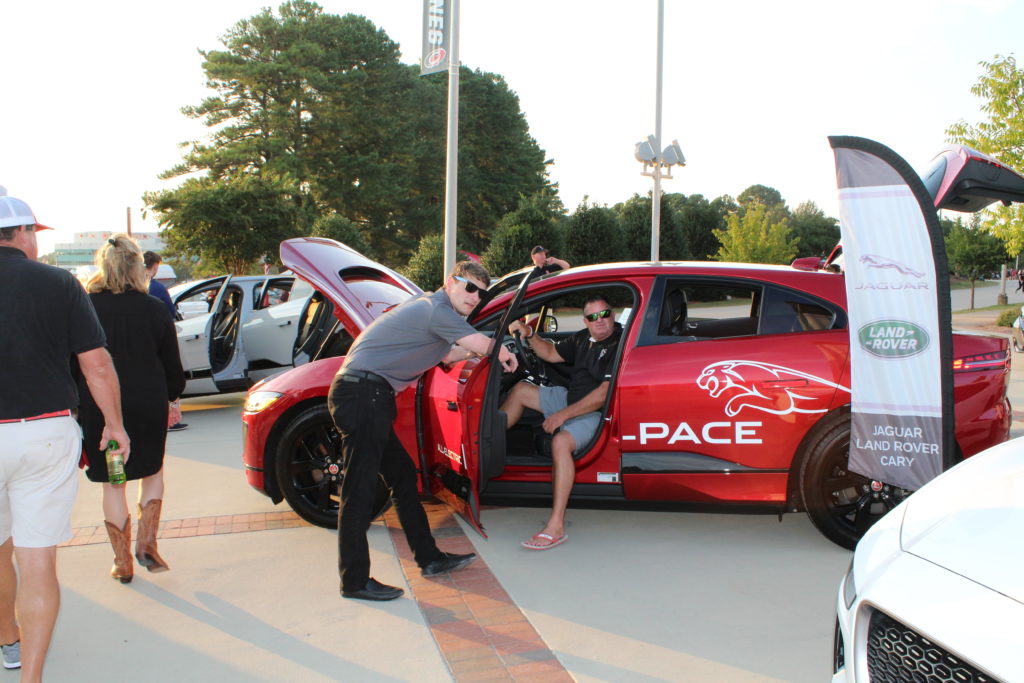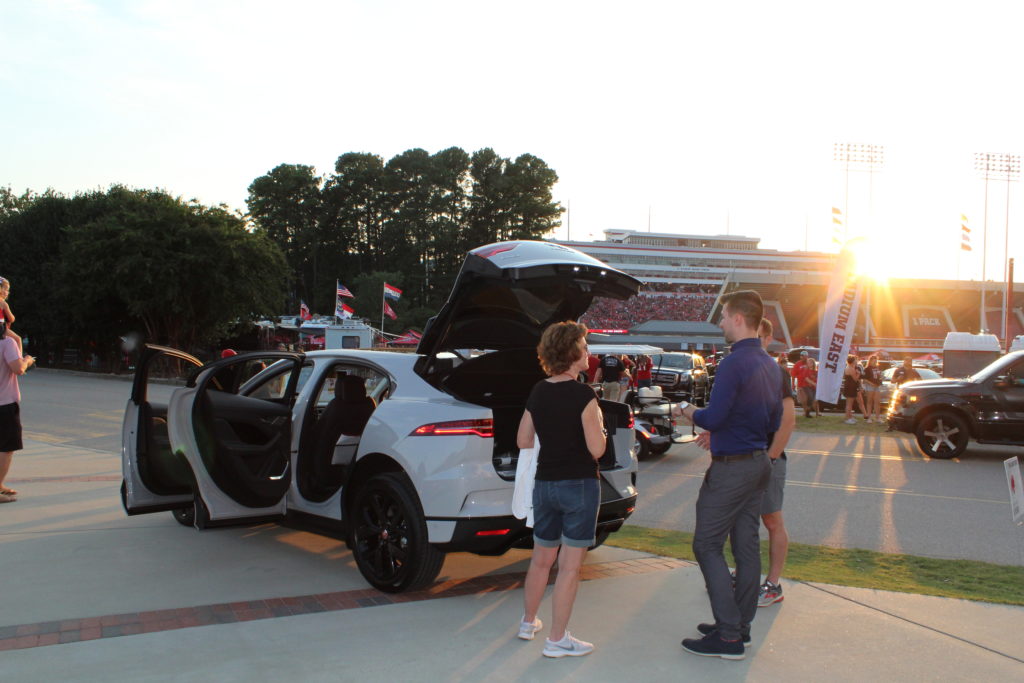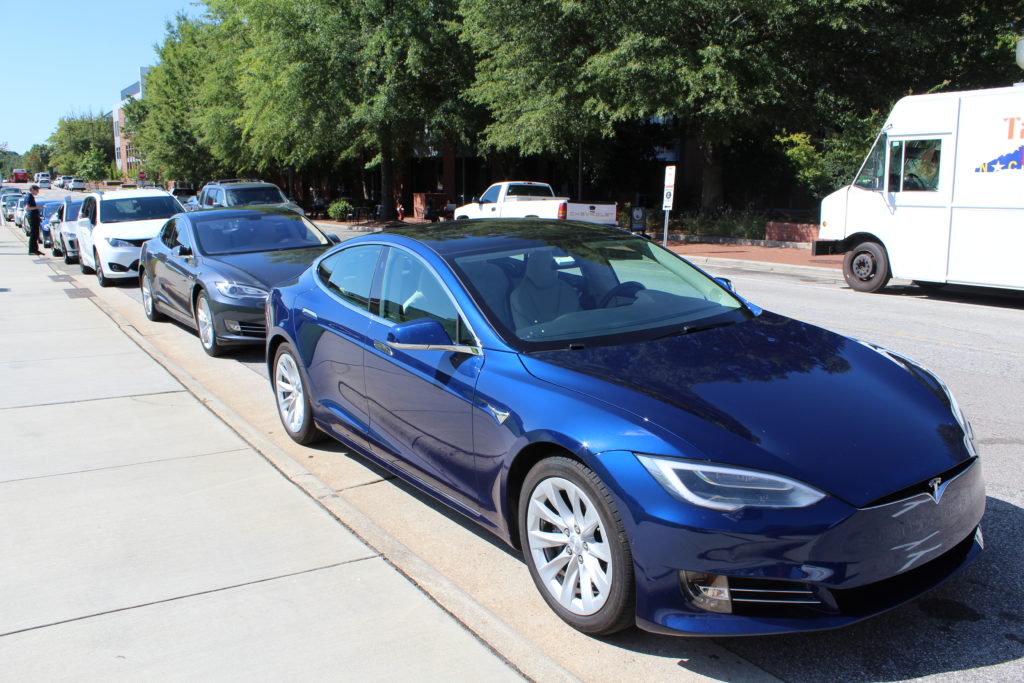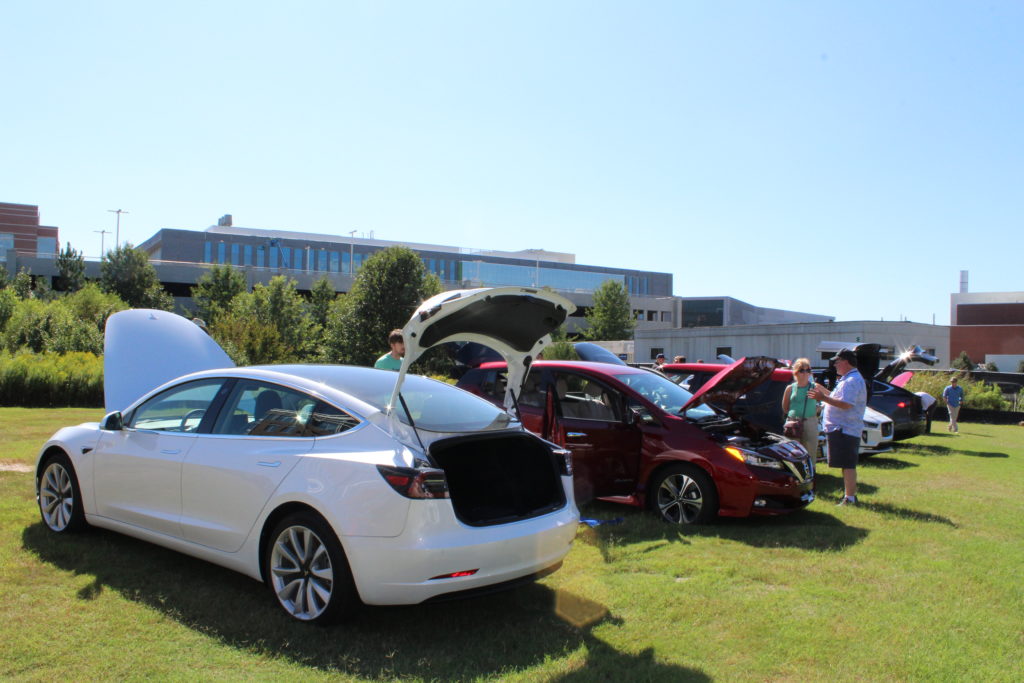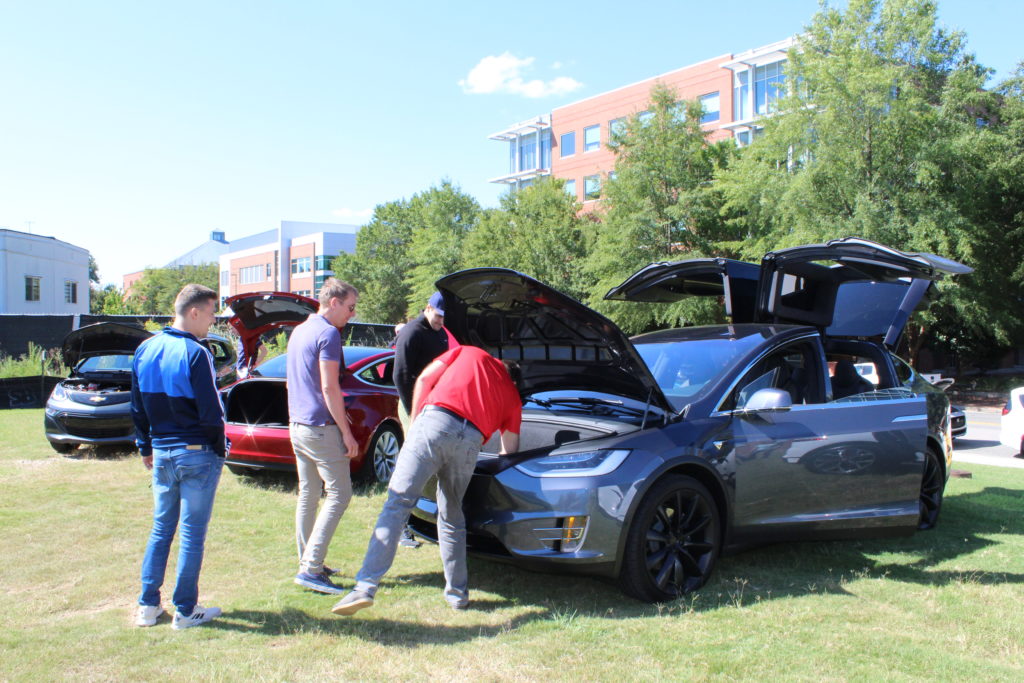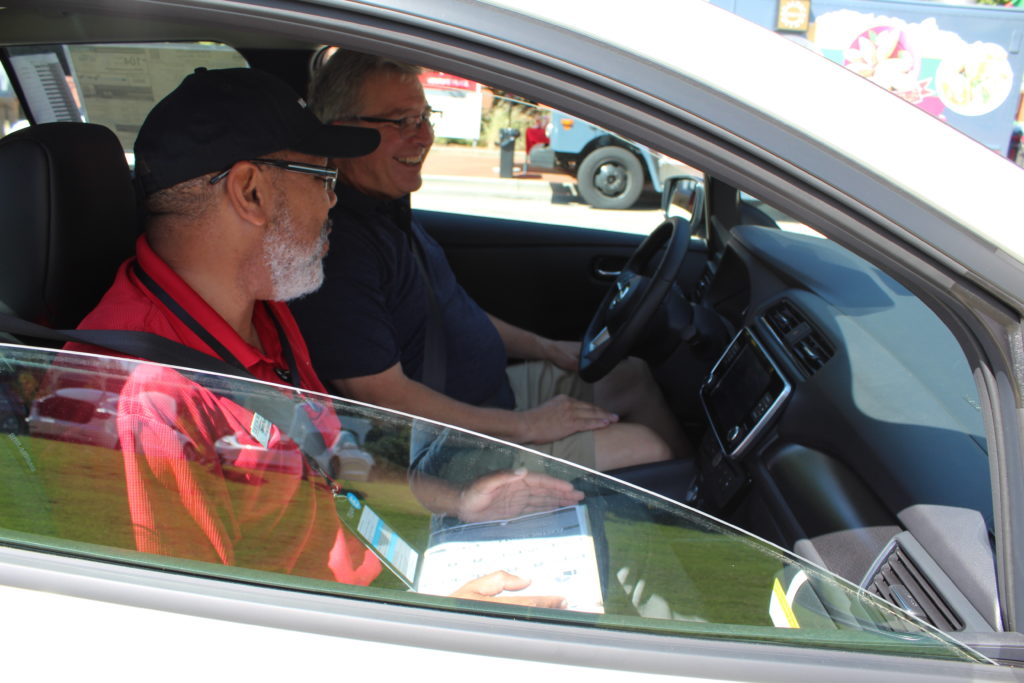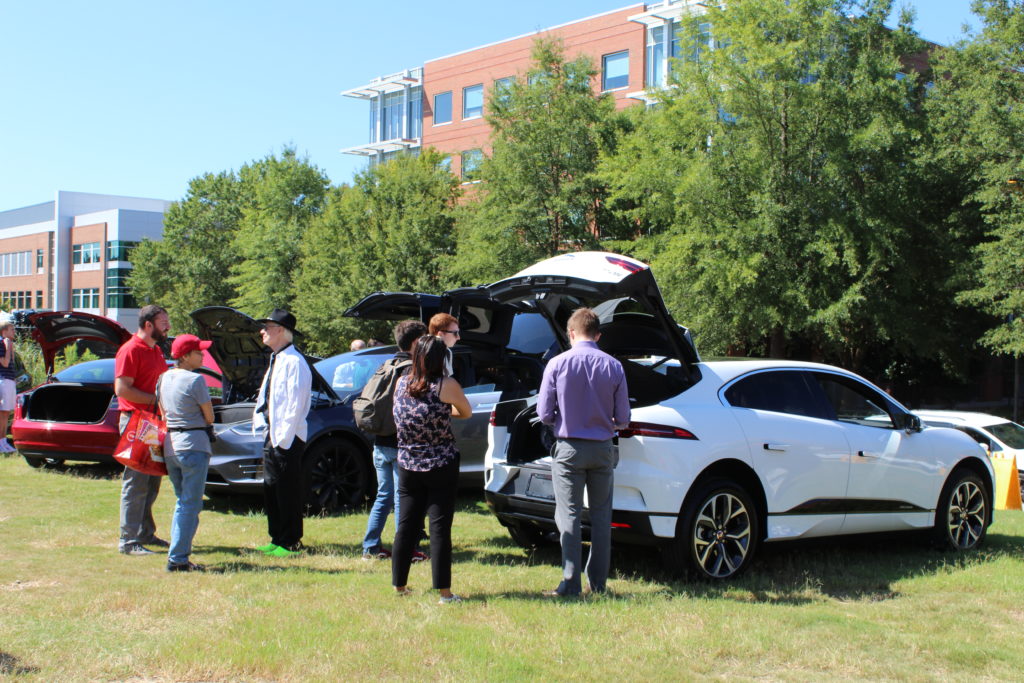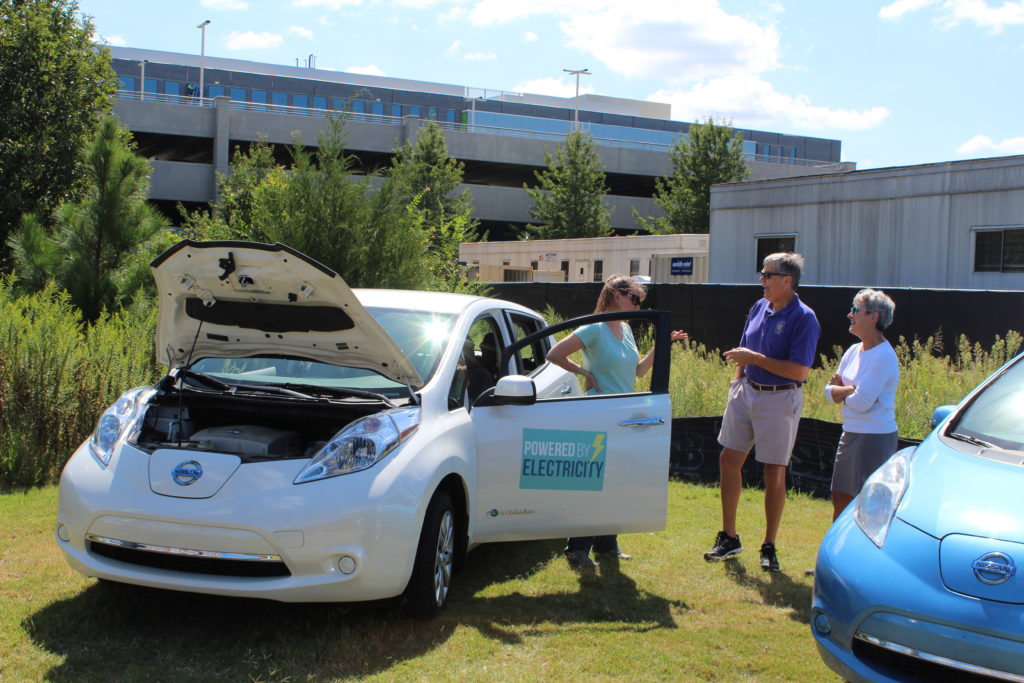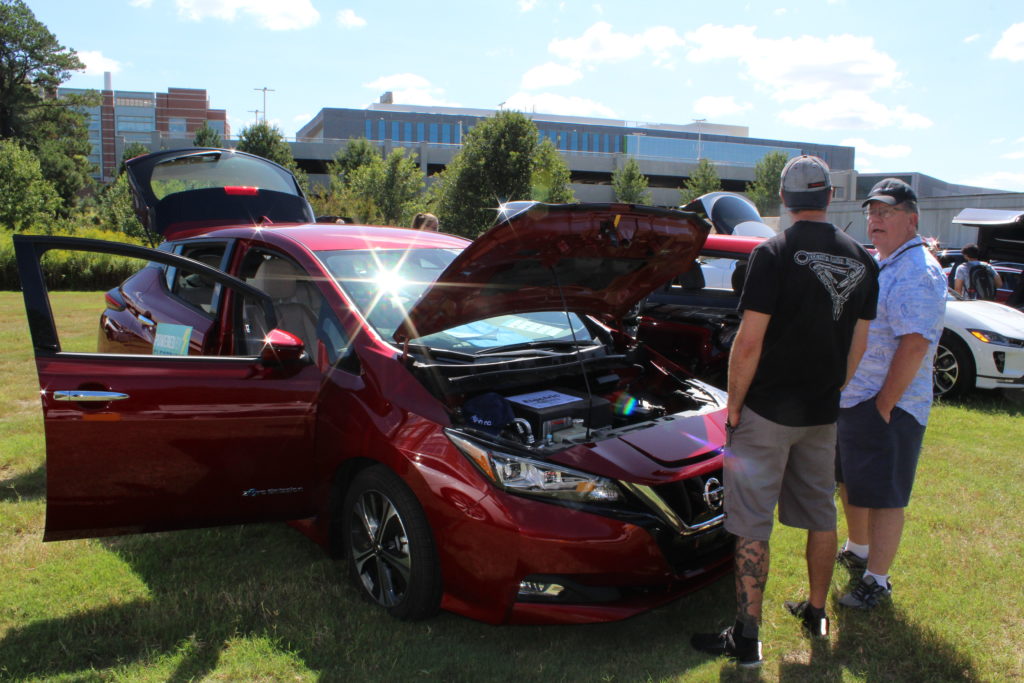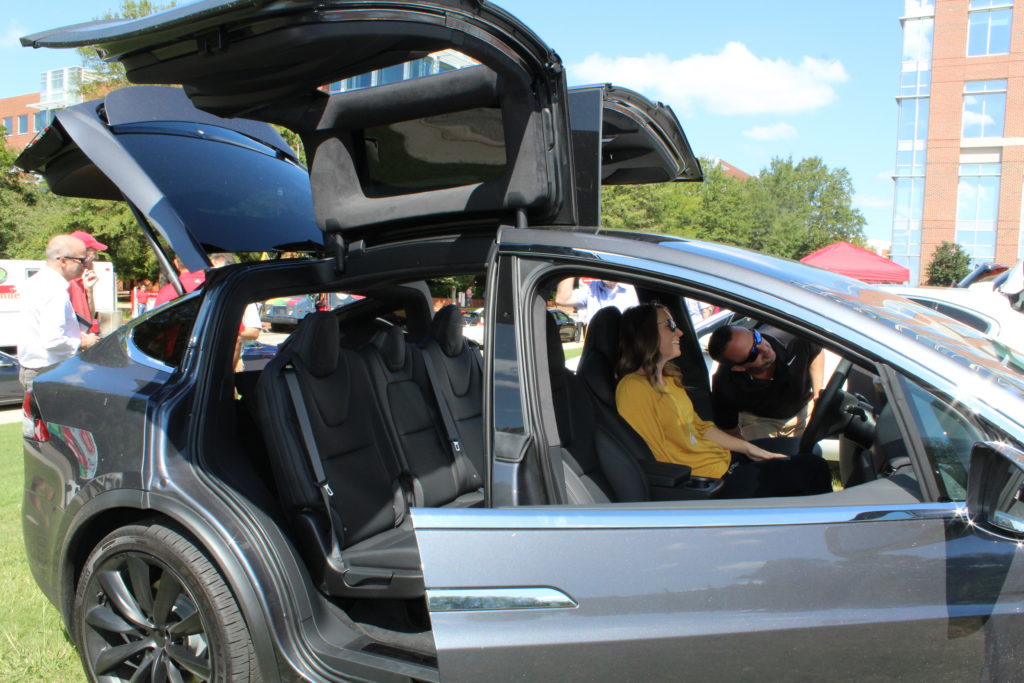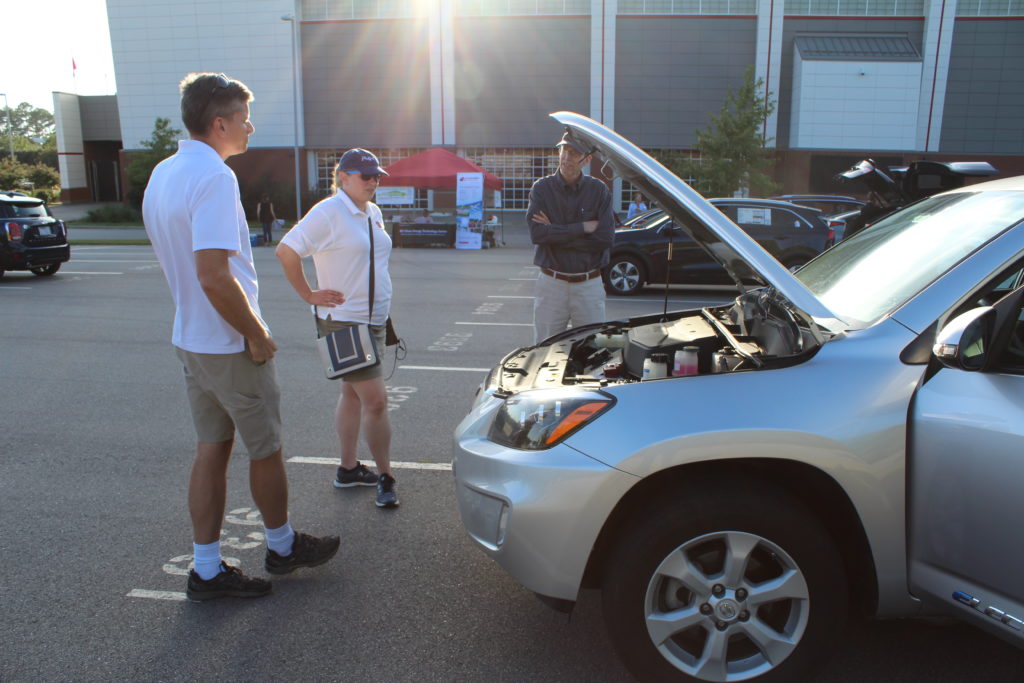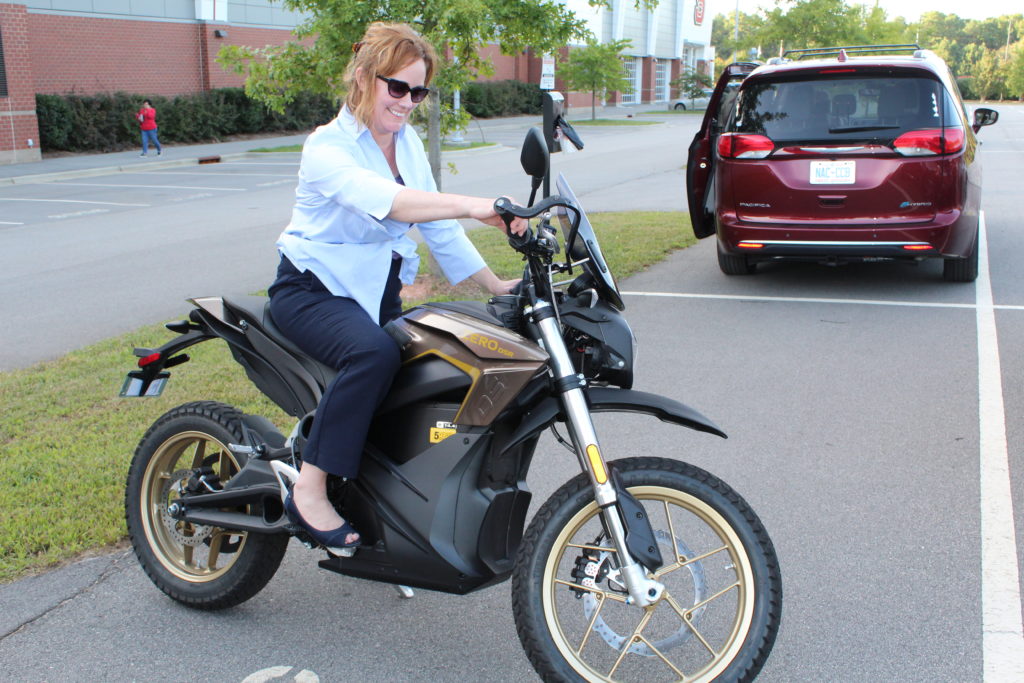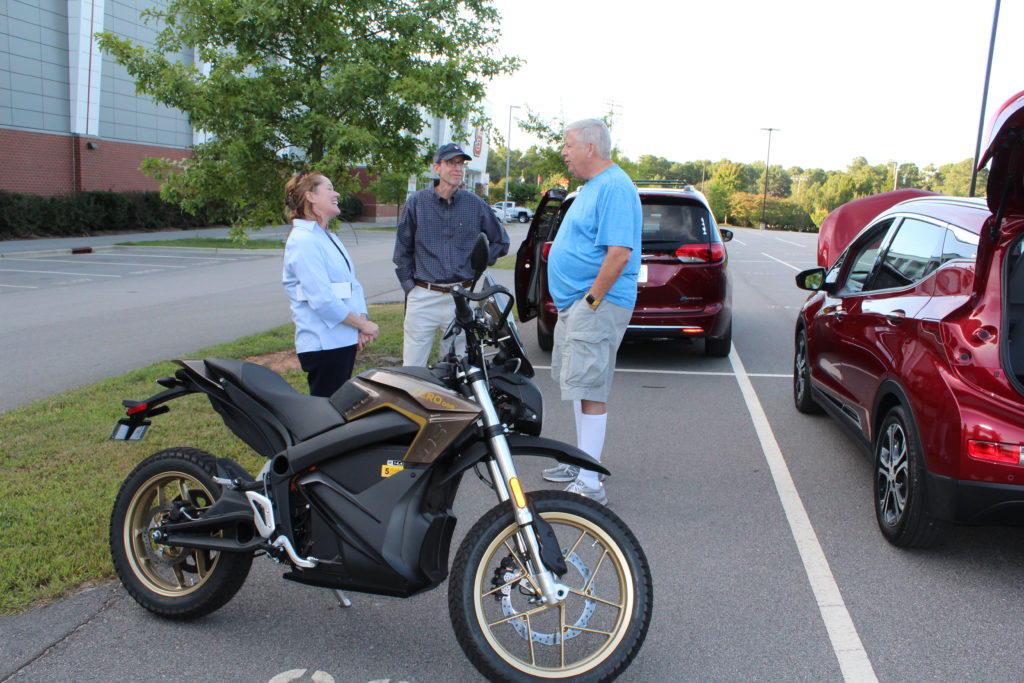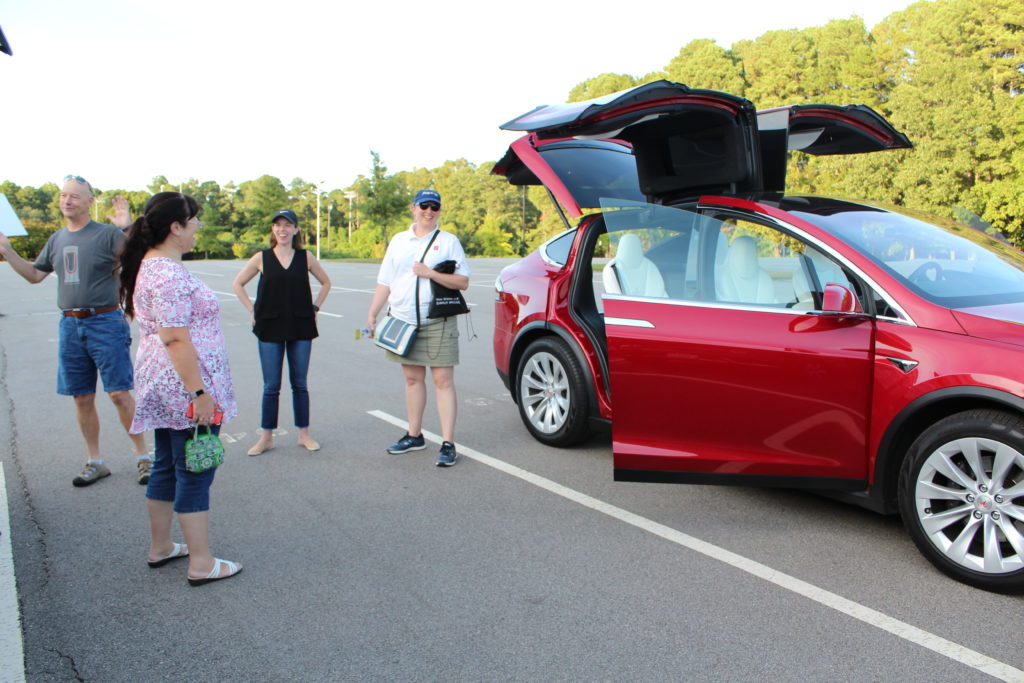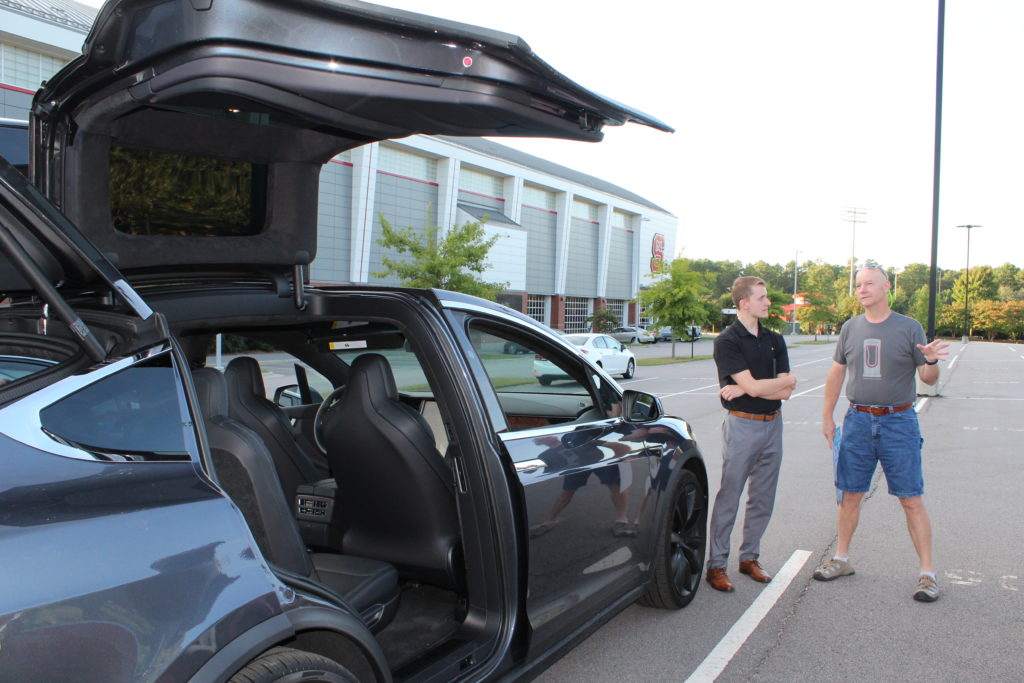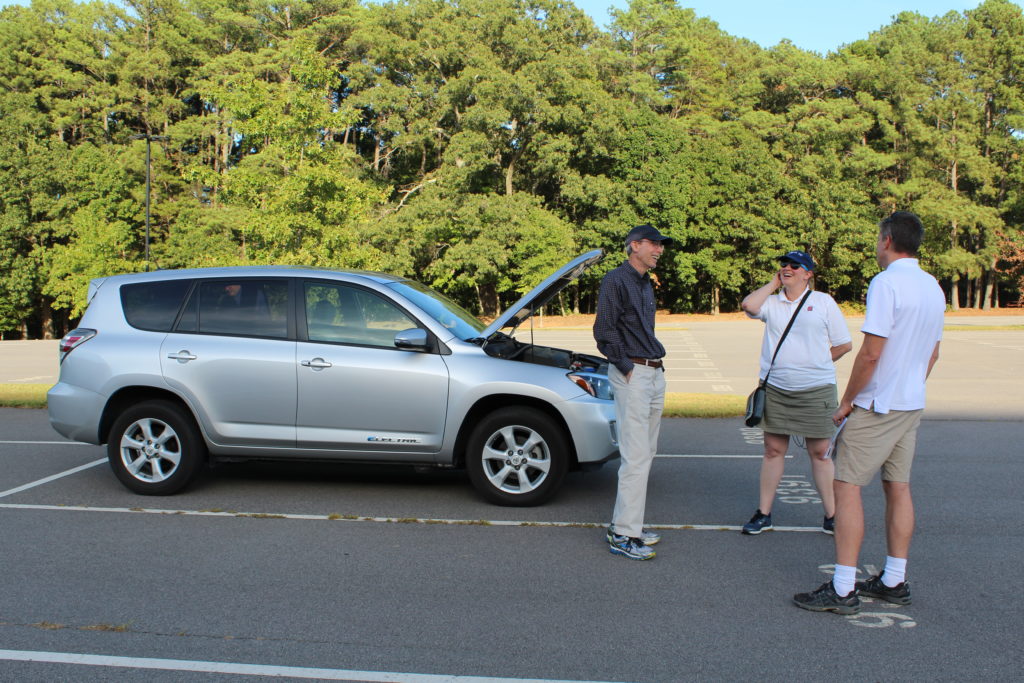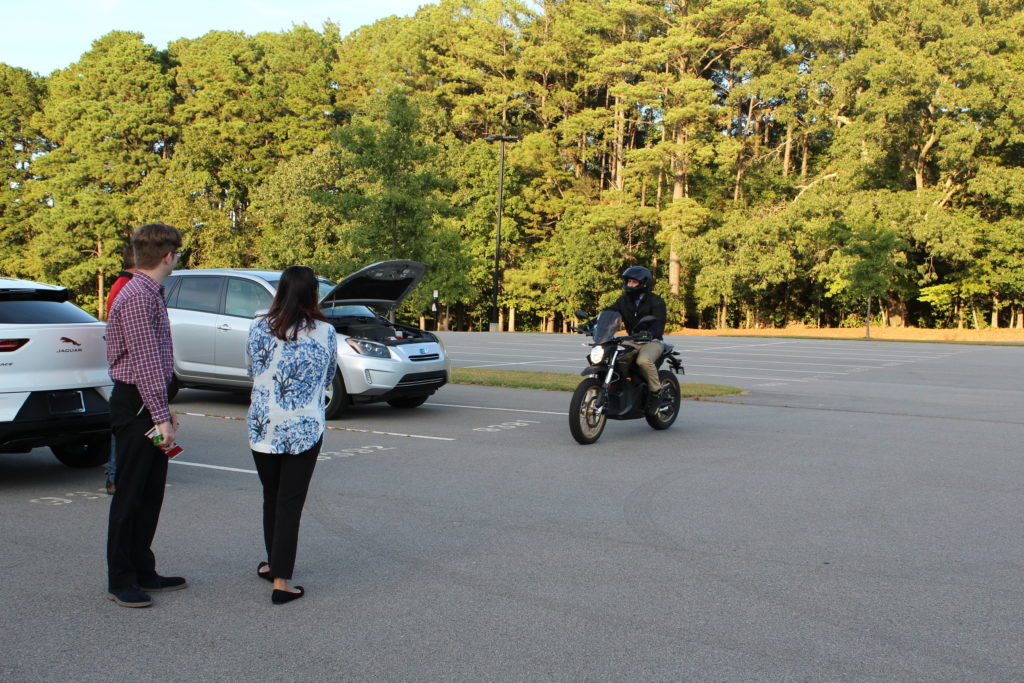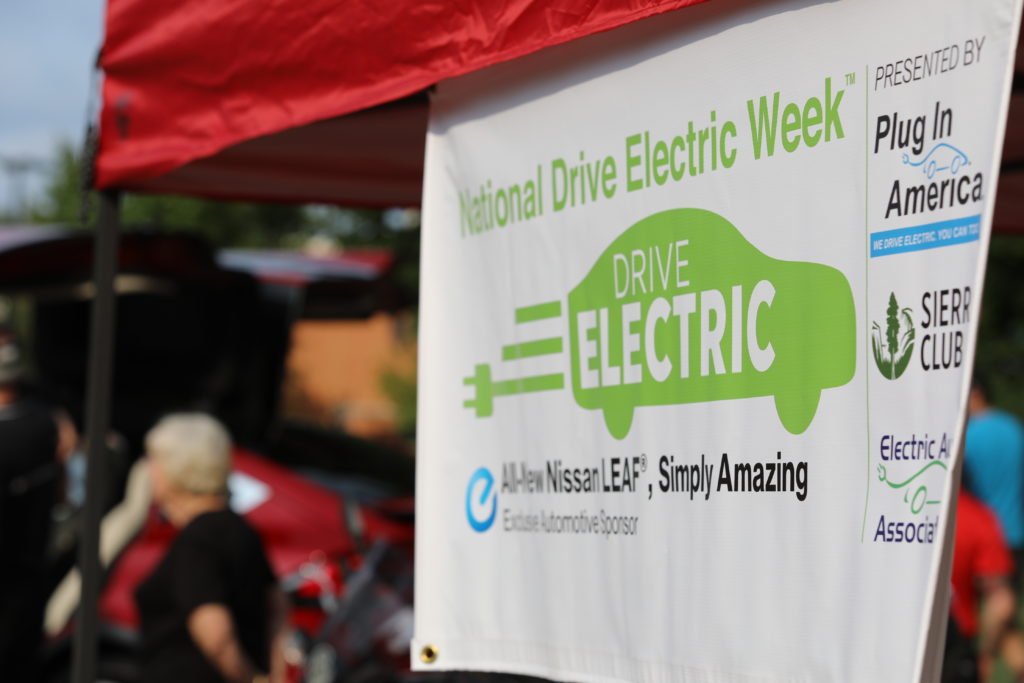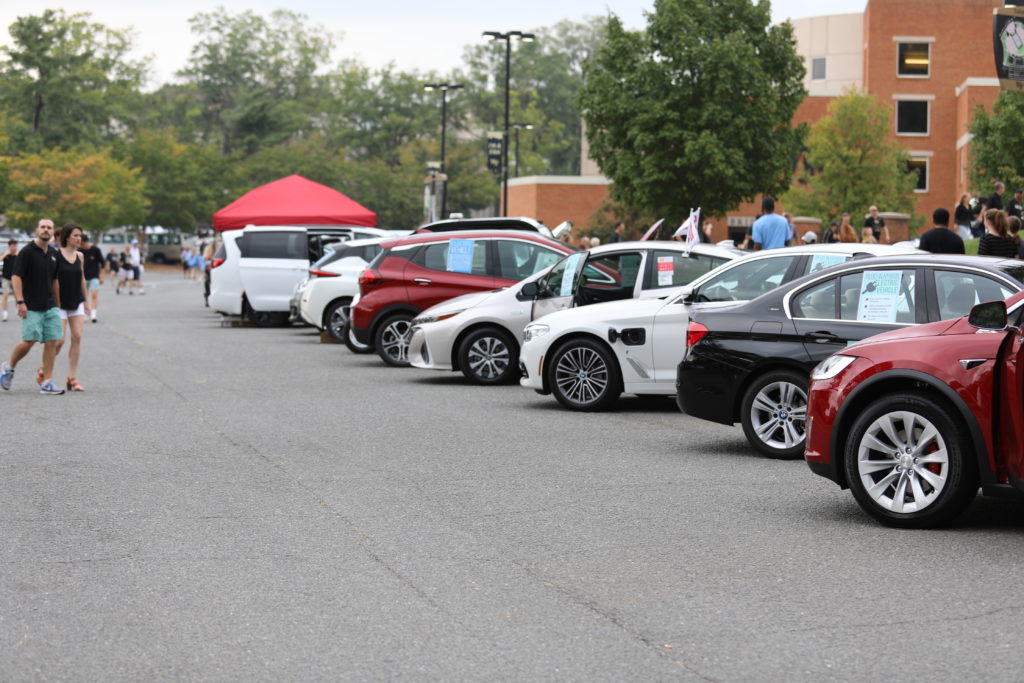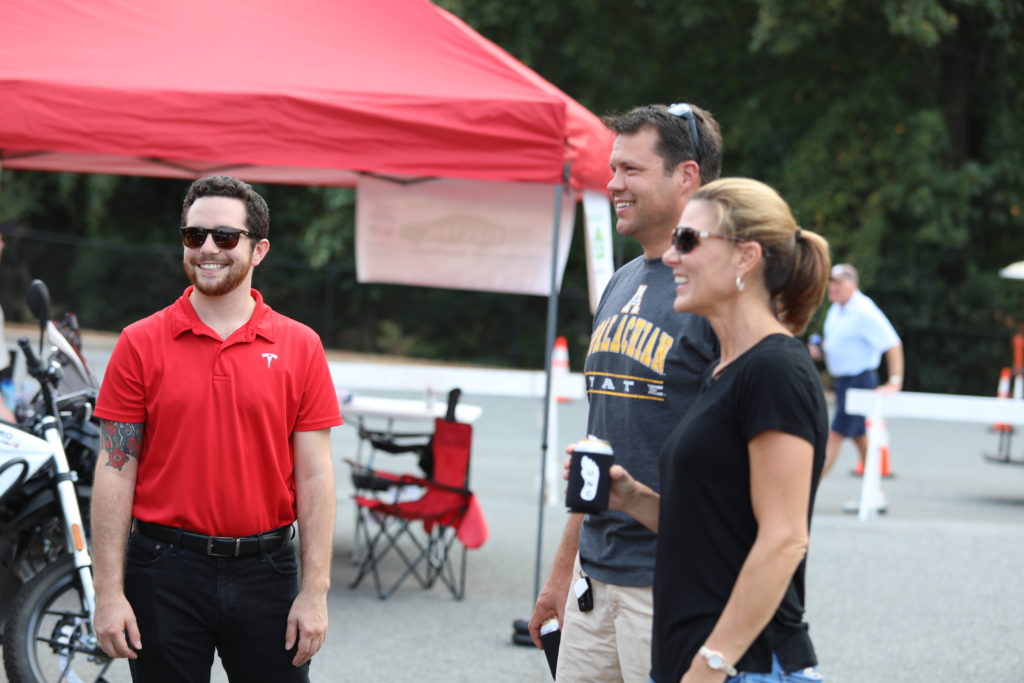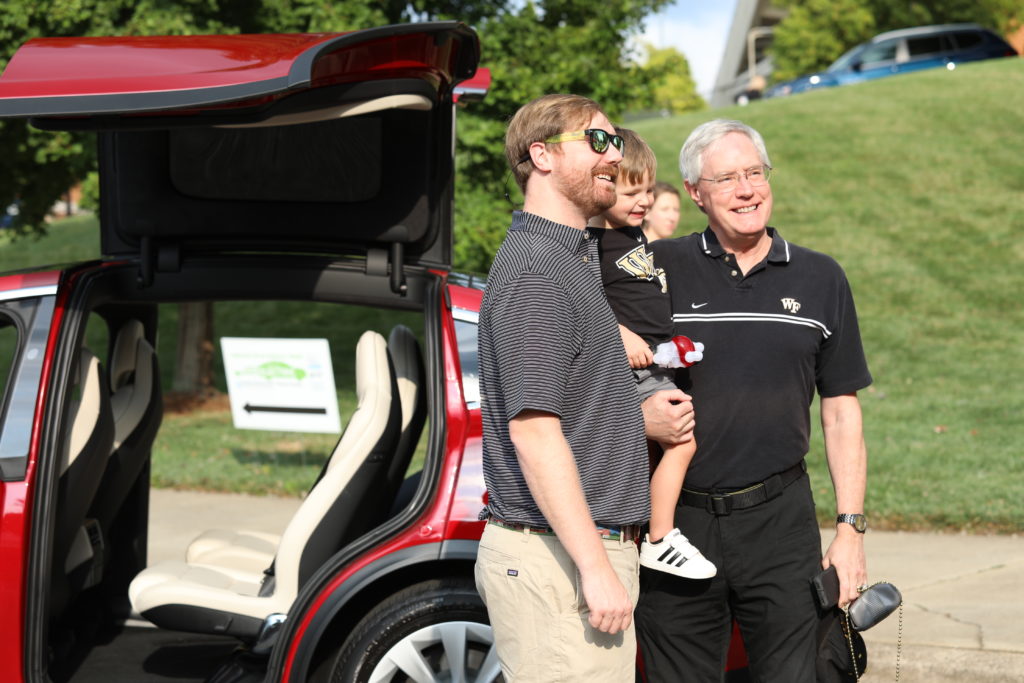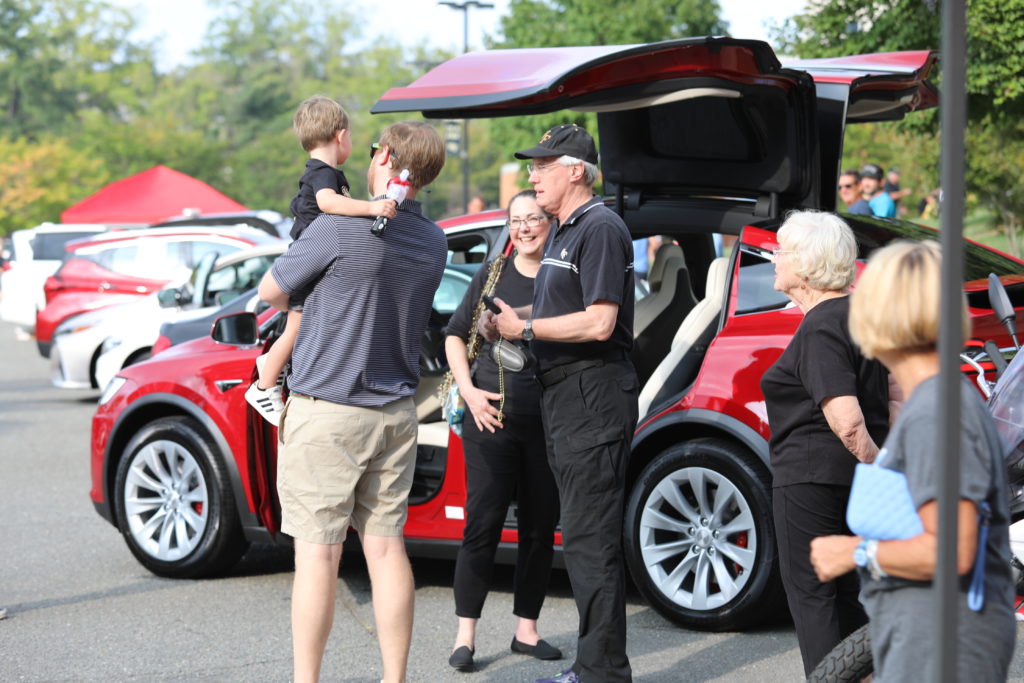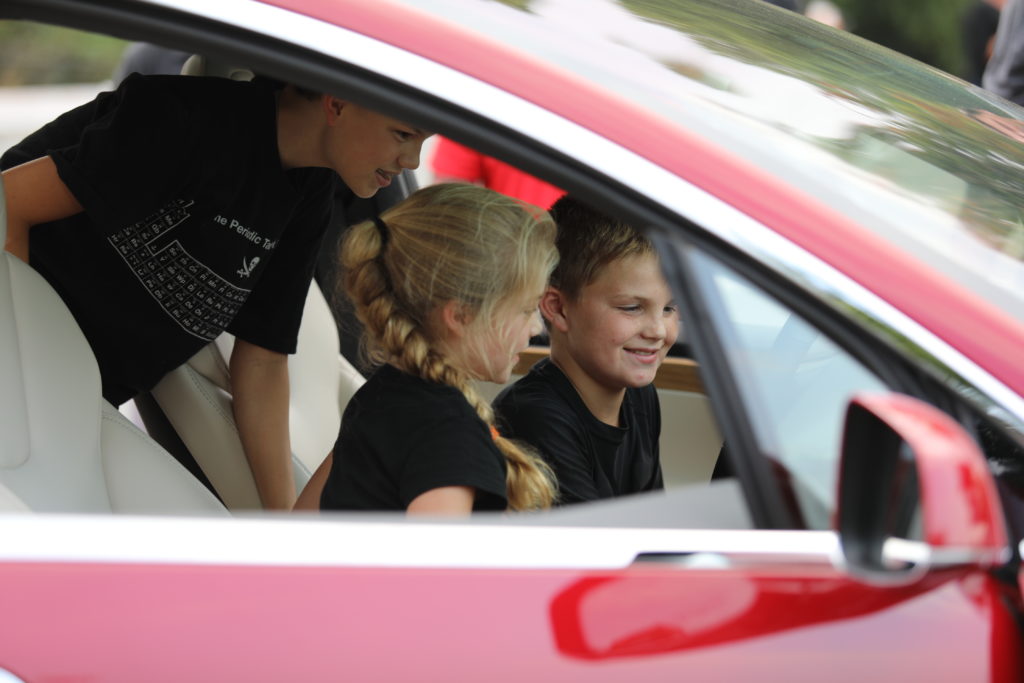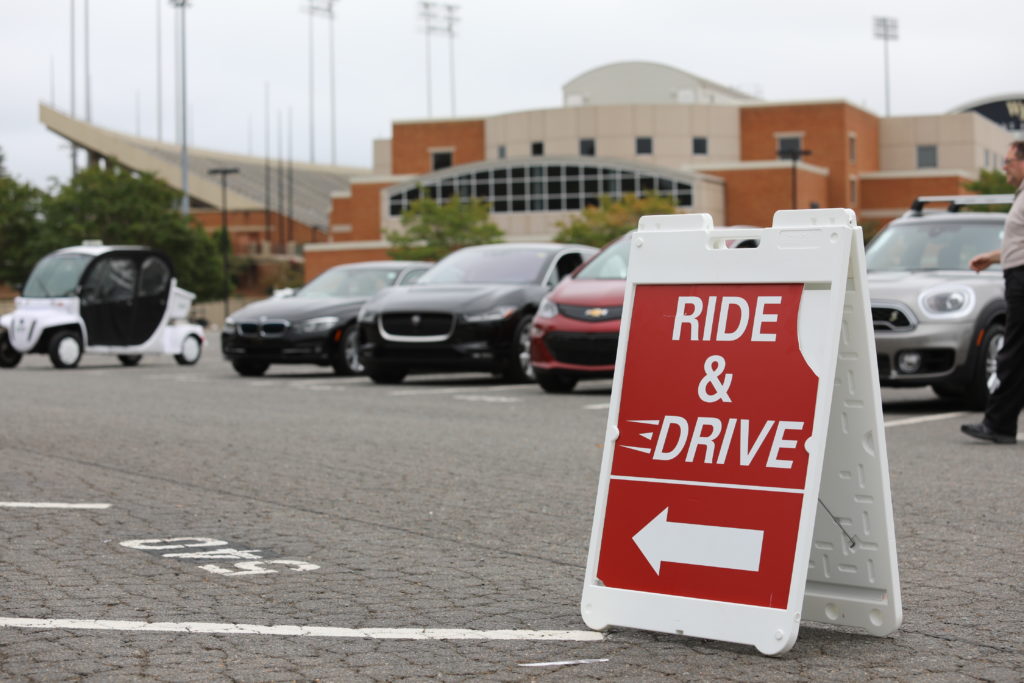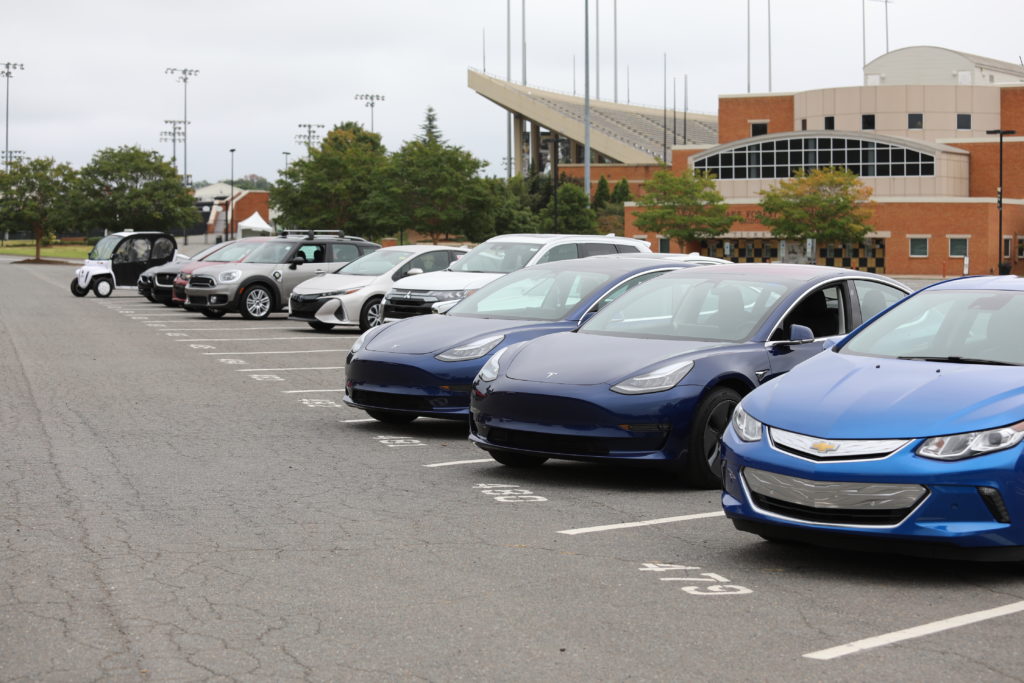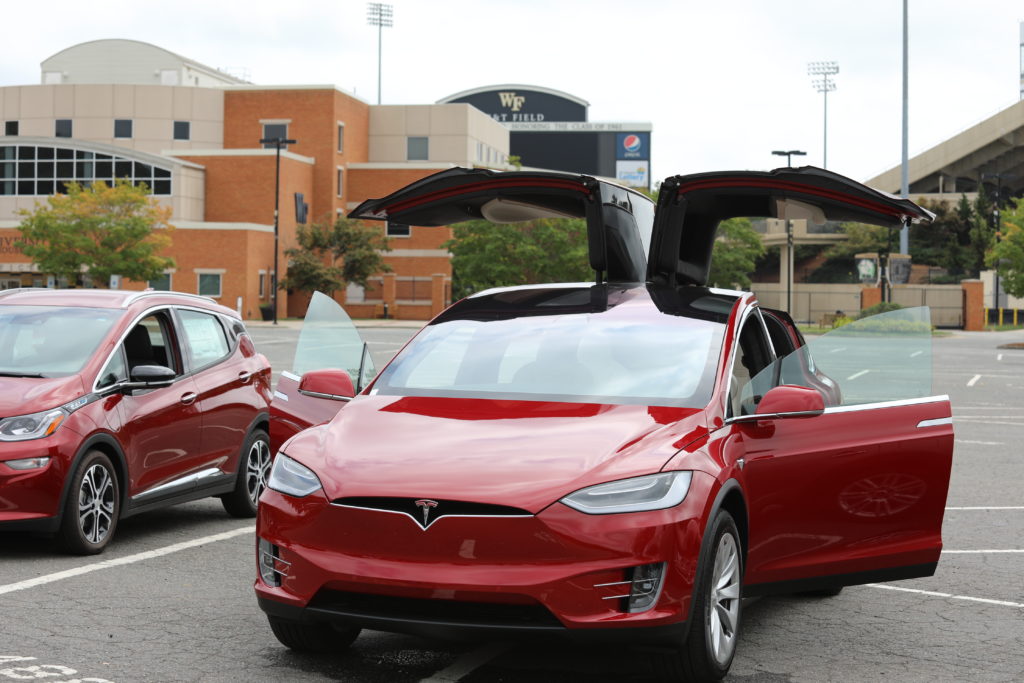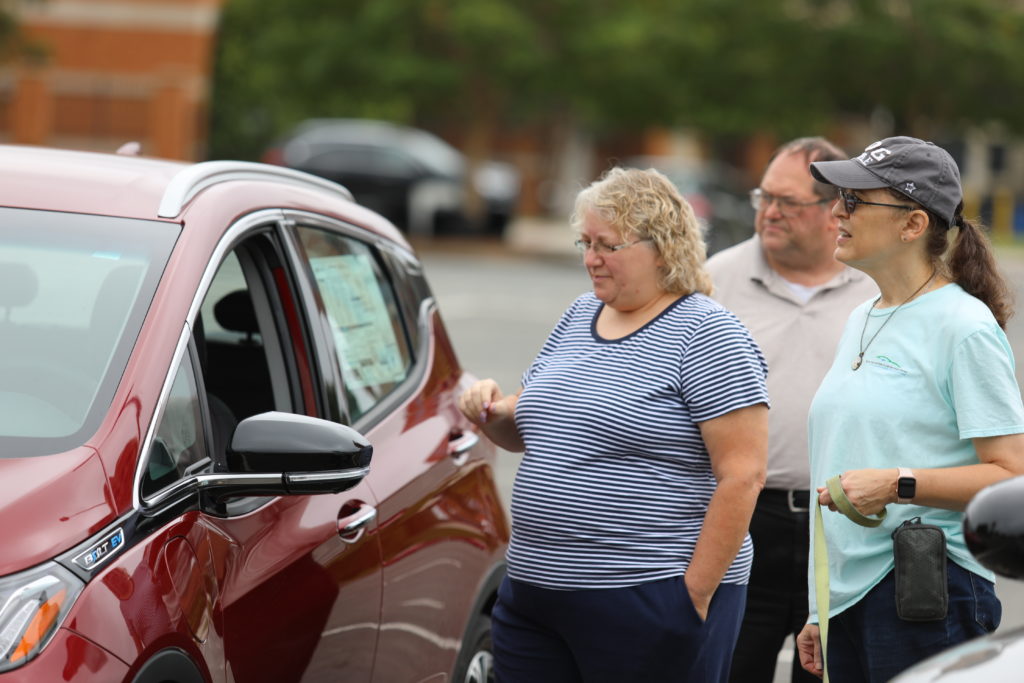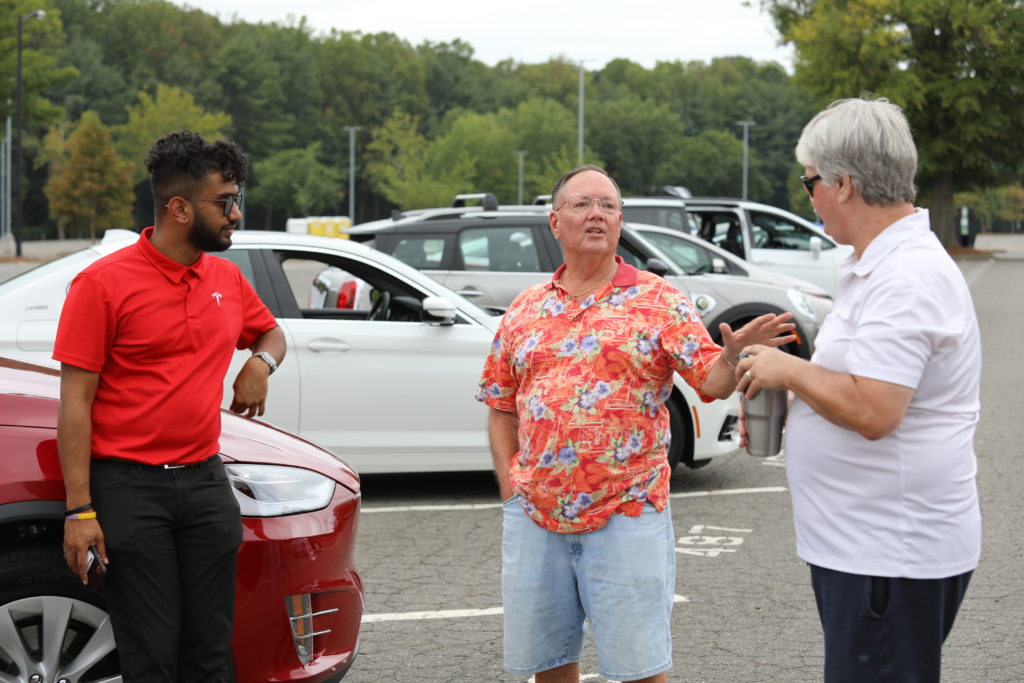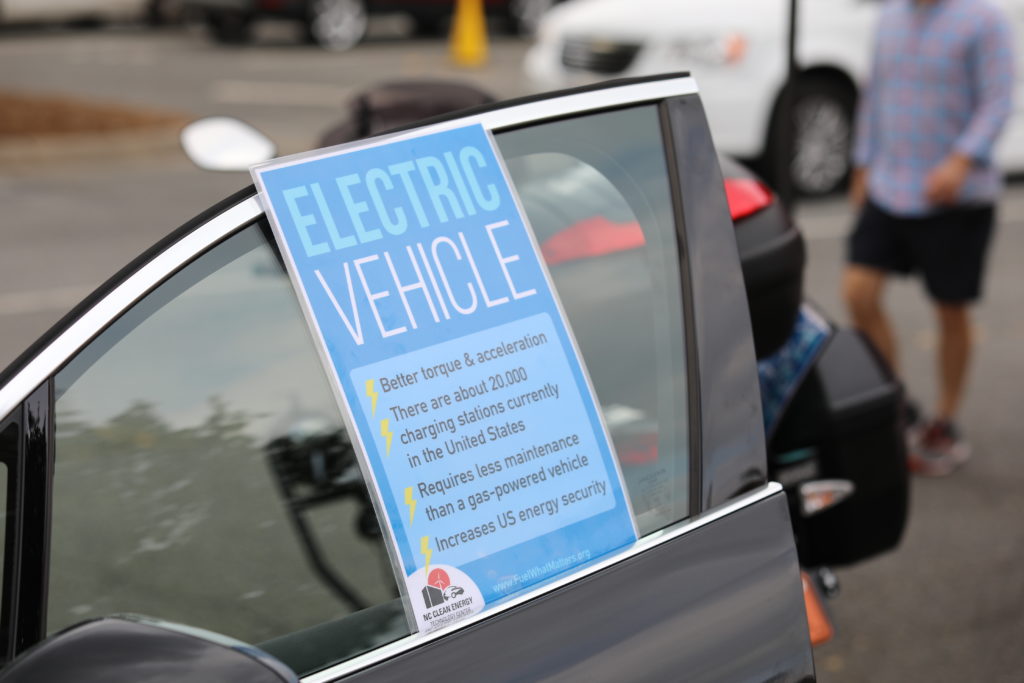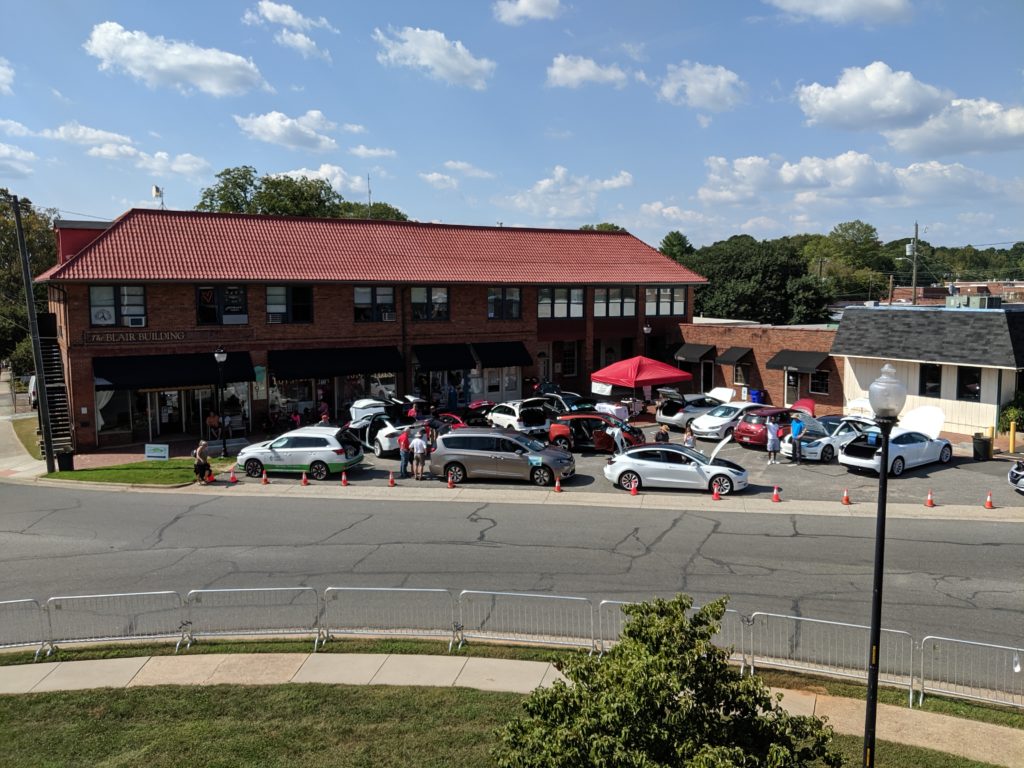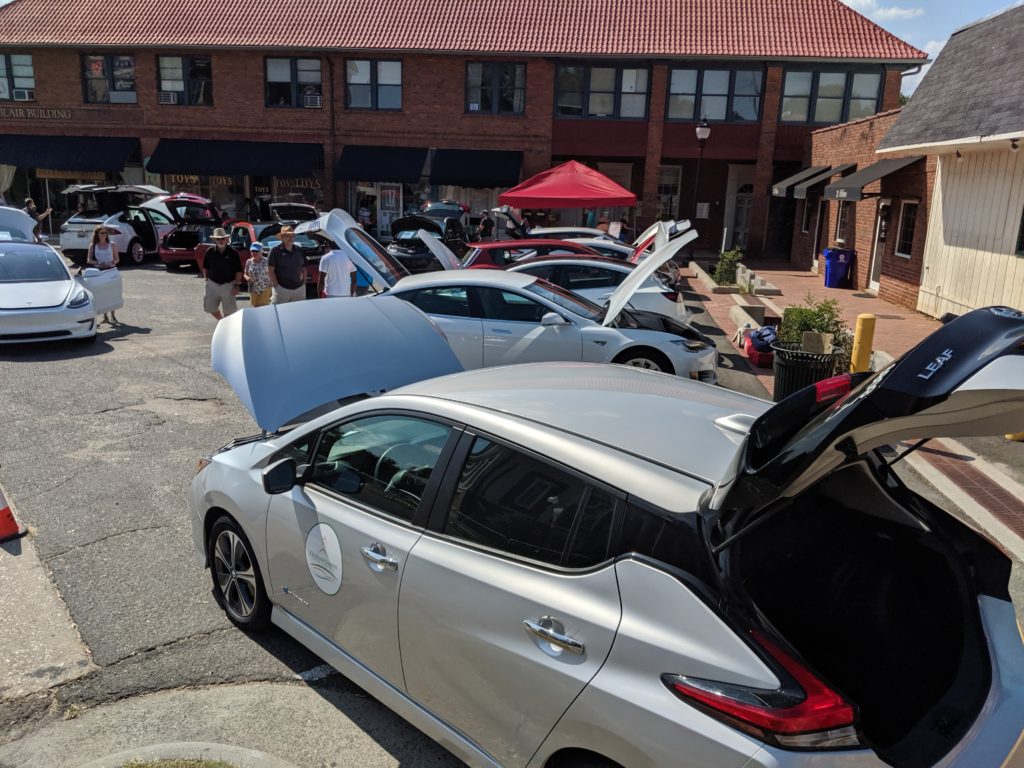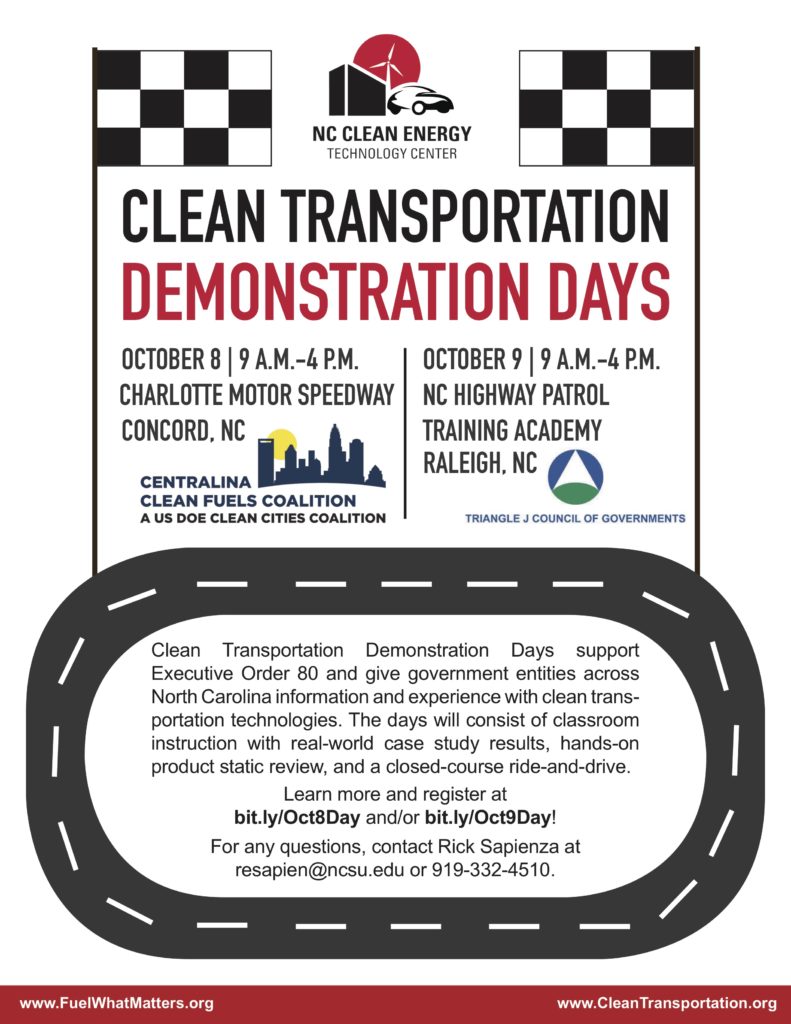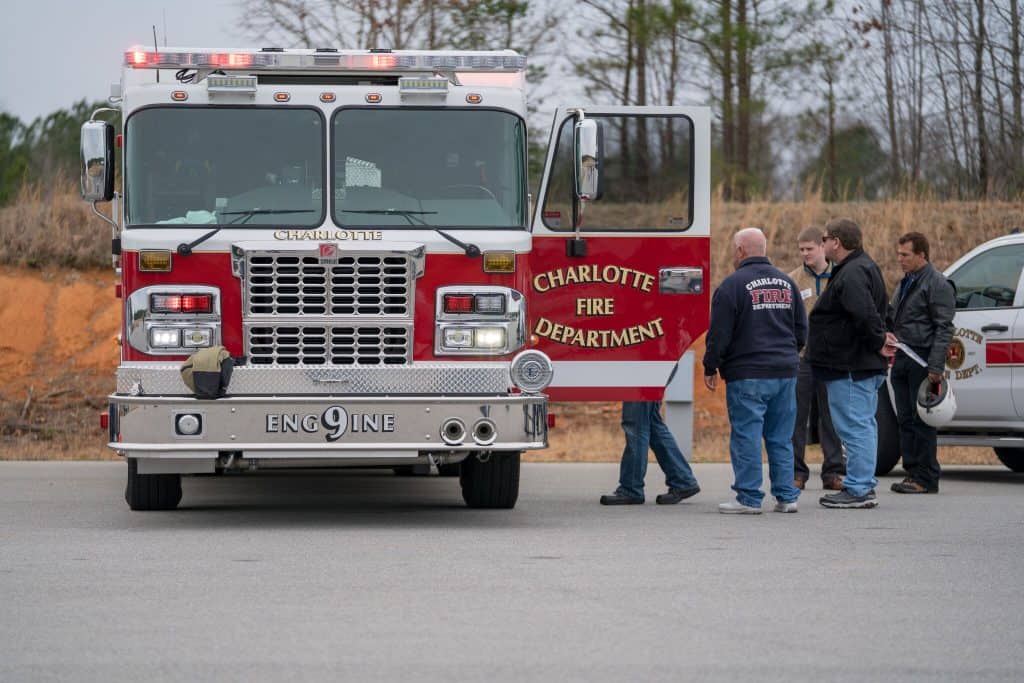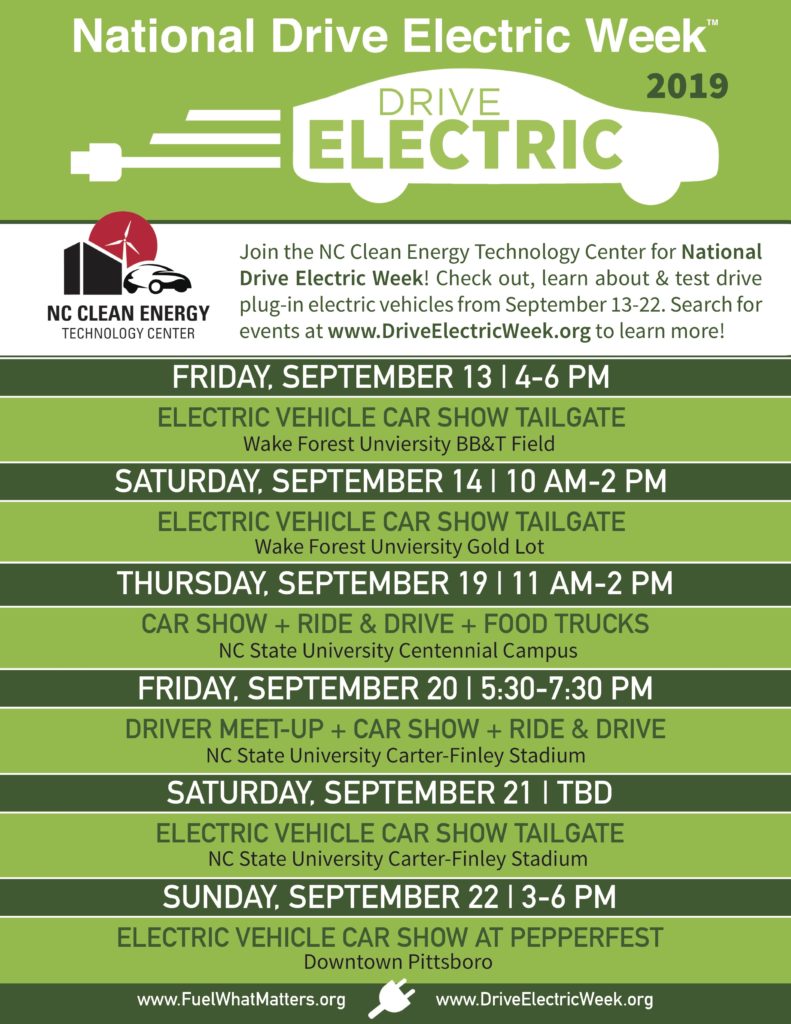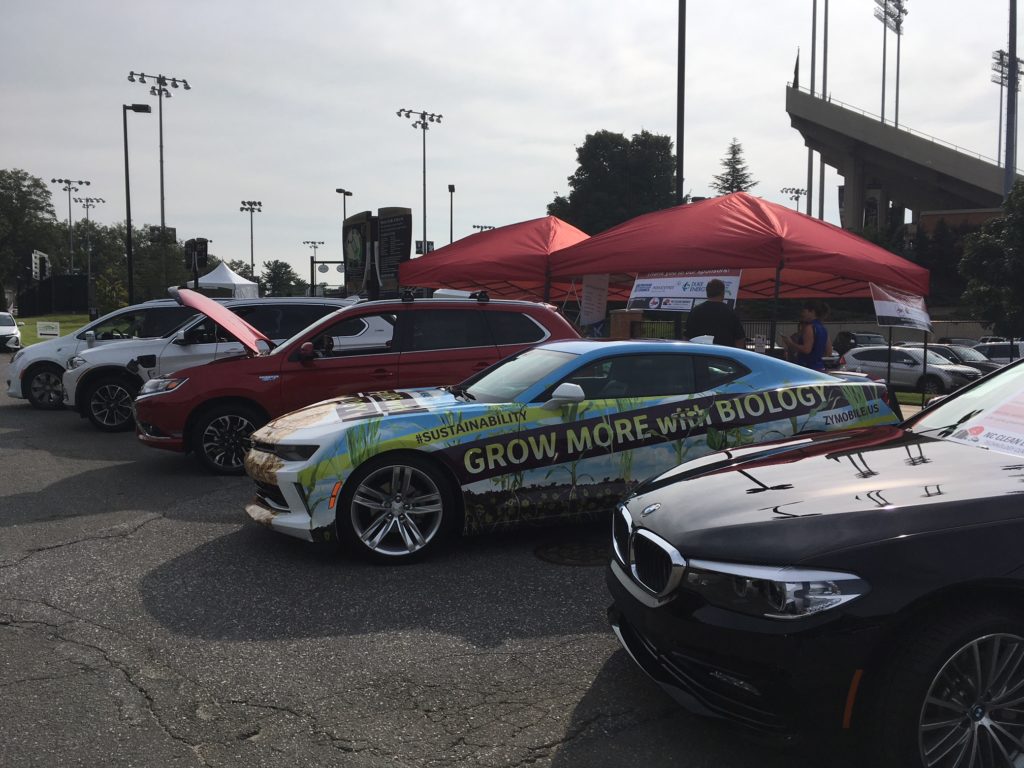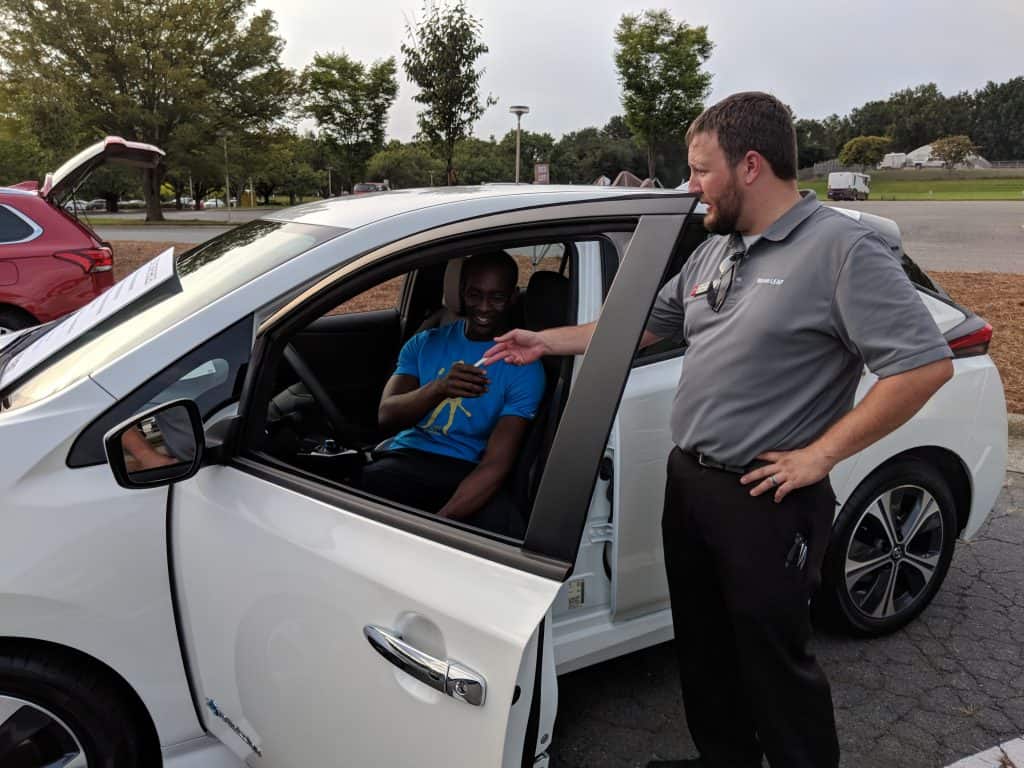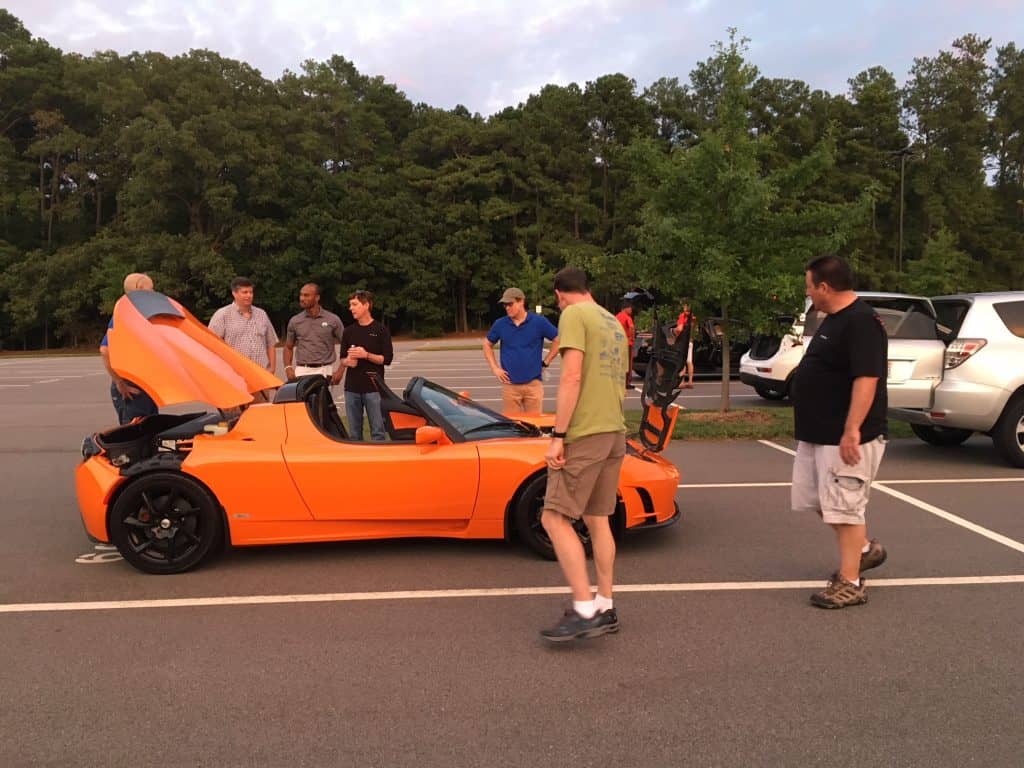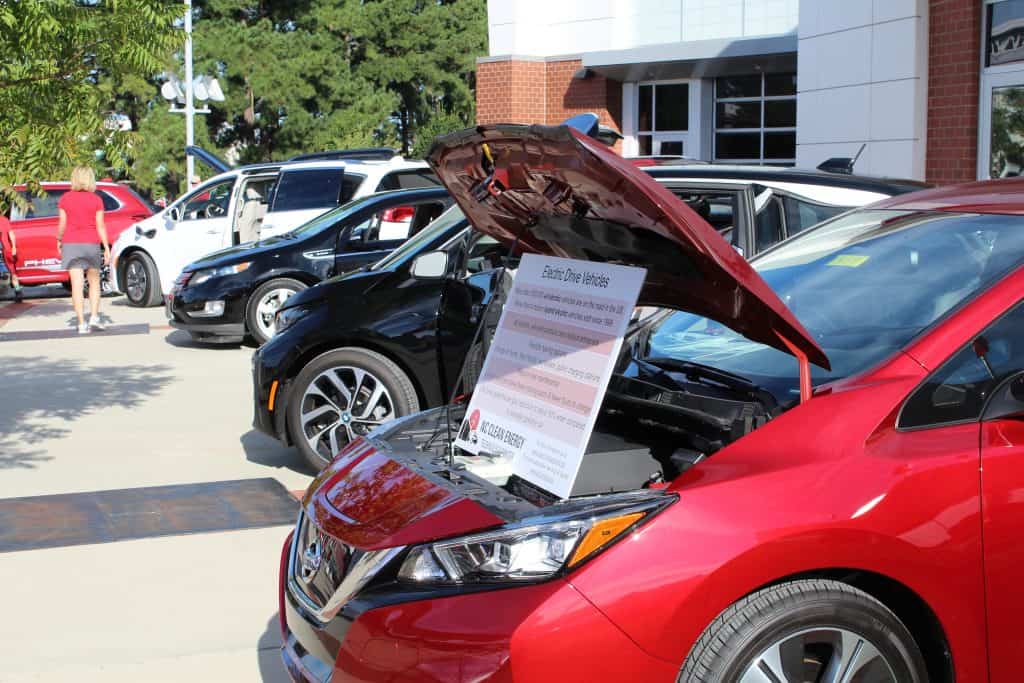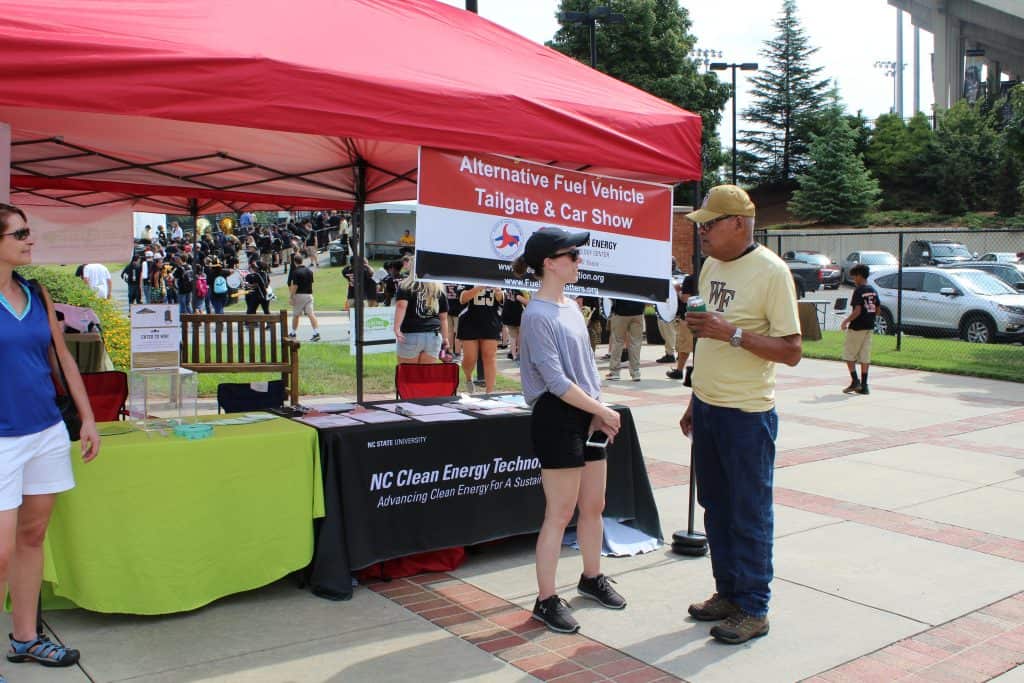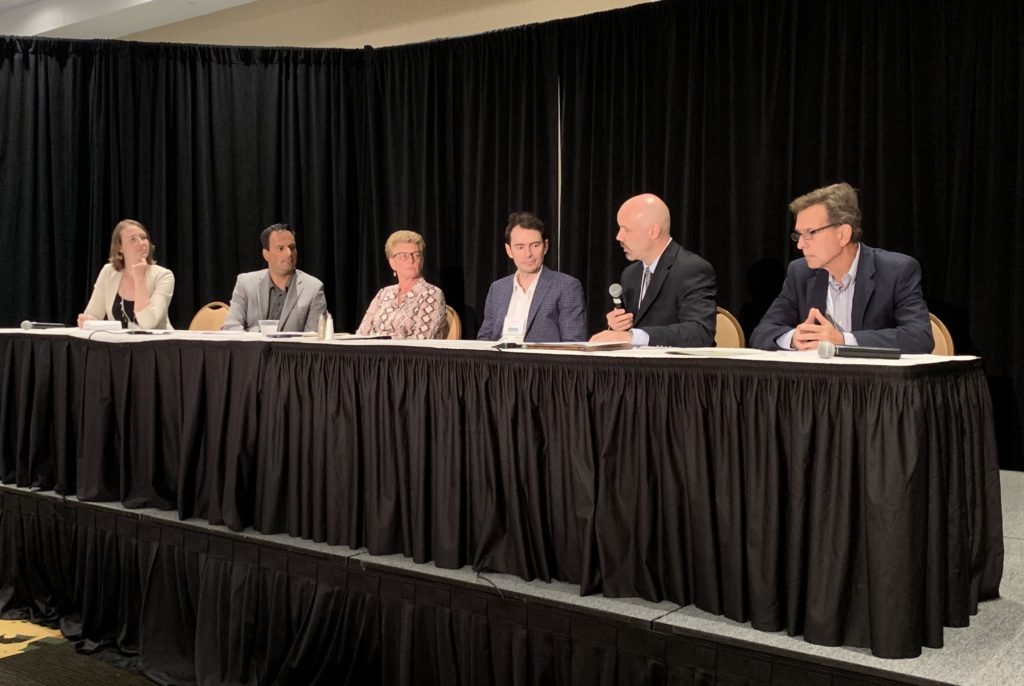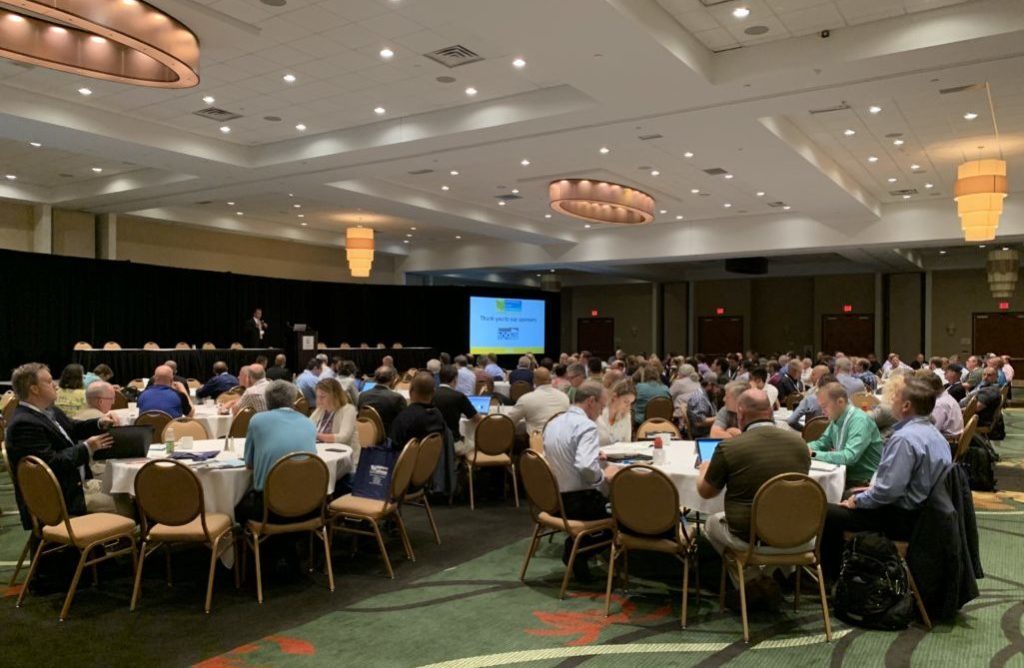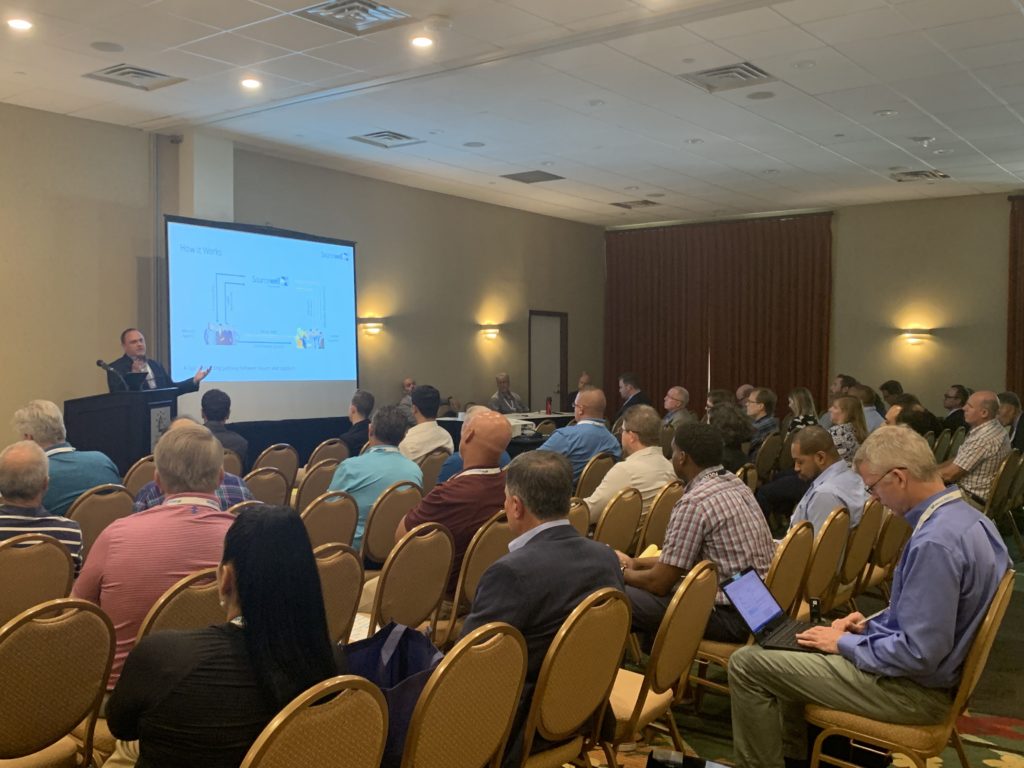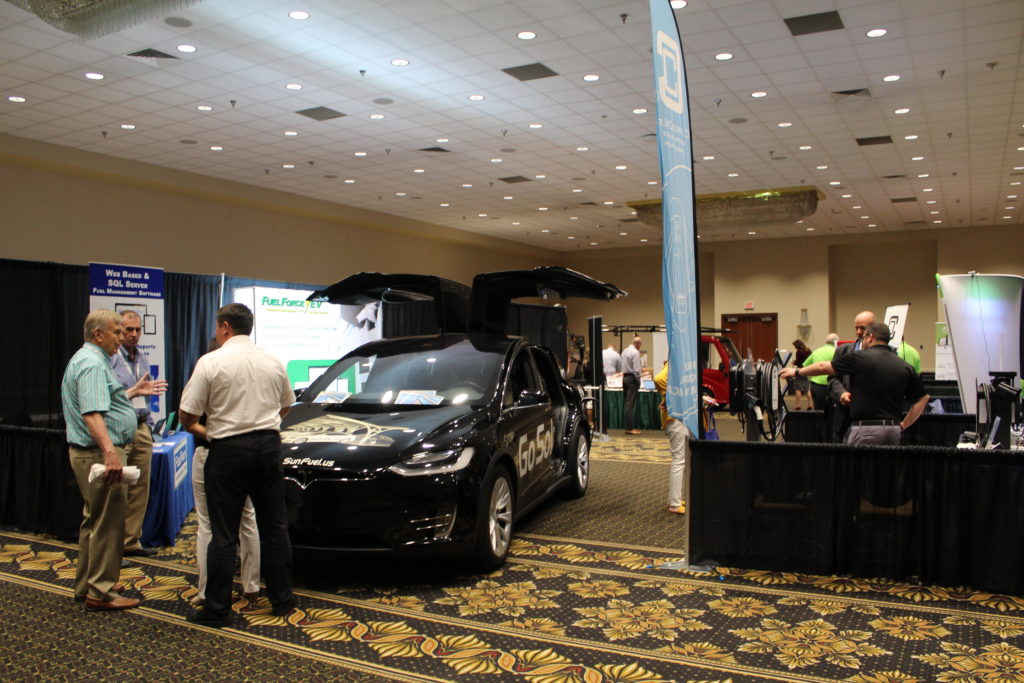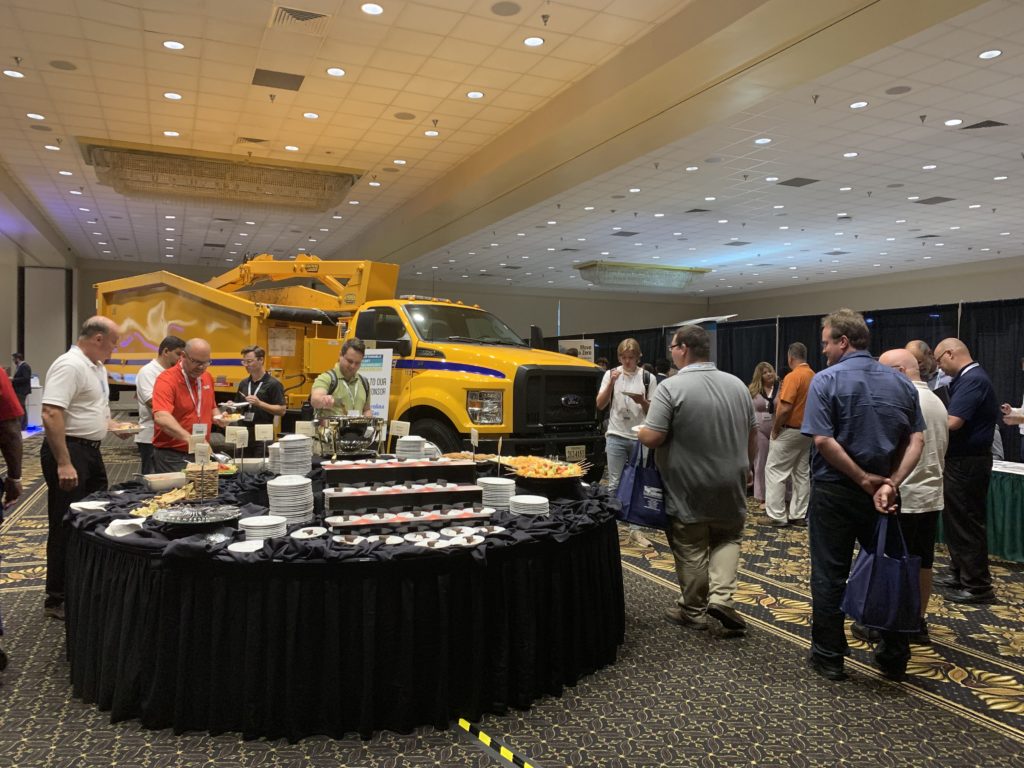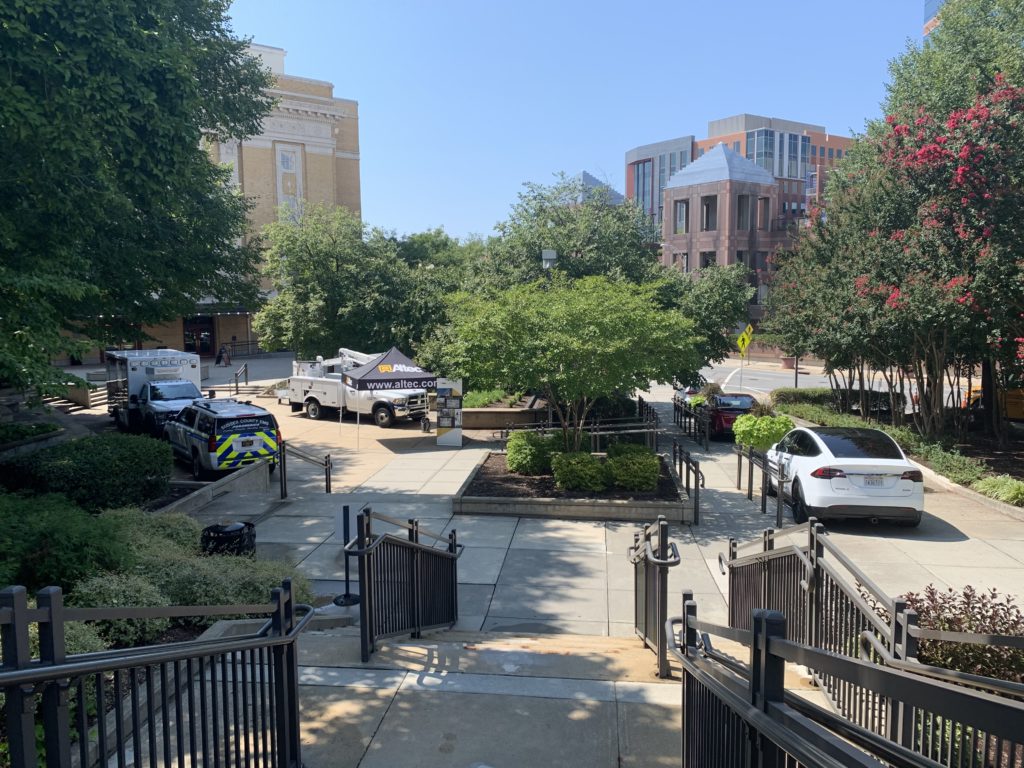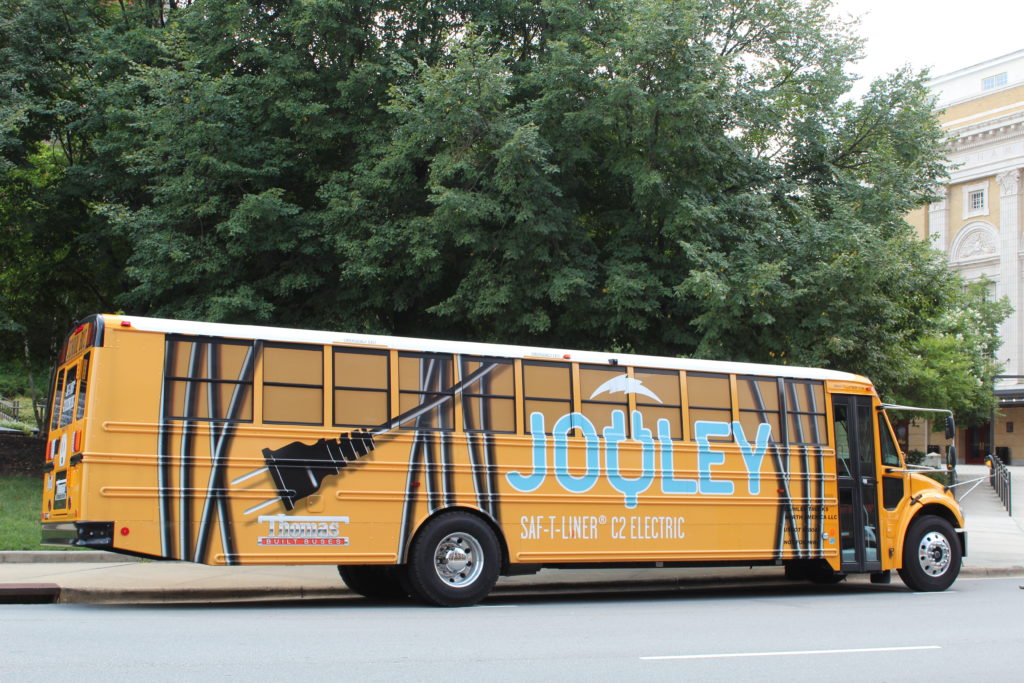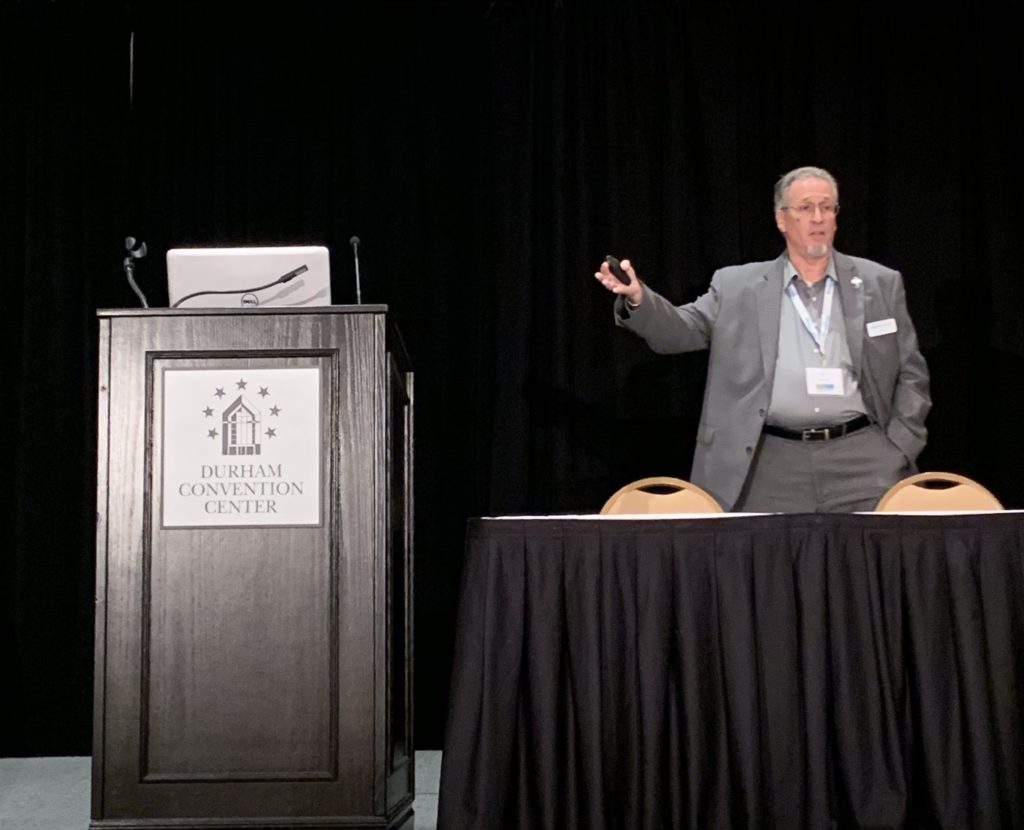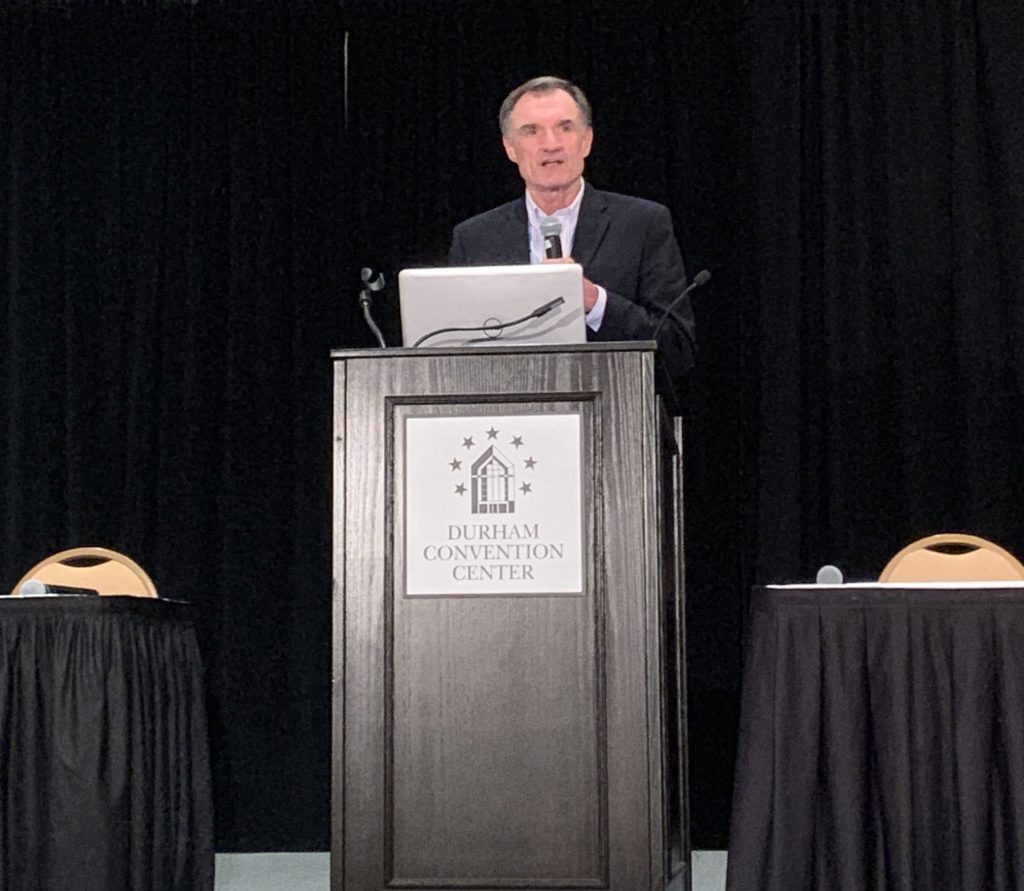In the third year of North Carolina Clean Energy Technology Center (NCCETC)’s “Keep Our Air Clean” Student Art Contest, students in North Carolina from kindergarten through college submitted their artwork for a chance to be featured on billboards across the state. Students were asked to create art focused on actions that people can take to reduce air pollution from vehicles and help keep the air clean. NCCETC congratulated four artists located in Raleigh, Charlotte, Waxhaw and Jacksonville, N.C., and the artwork is now live on 22 billboards across North Carolina.
Heather Brutz, Finance and Operations Manager of the Clean Transportation Program at NCCETC, and leader of the project, said her goals were to educate the public about steps we can take to improve air quality, as well as engage young people’s creative talents to help get the word out.
“Clean air is vital for health,” Brutz said. “This is true for people of all ages, but there is research that shows that exposure to air pollution for kids increases their chances of getting asthma, which affects their health for the rest of their lives.”
Brutz said she came up with the Student Art Contest when recalling her previous job as a middle school teacher.
“I used to try and encourage my students to express themselves, and express concepts that they were learning about in other classes in art,” Brutz said. “When considering ways to educate people about air quality and ways to engage young people, I thought about the idea of featuring student artwork. From there, I thought through the idea more and came up with the idea of a social media art contest. I had seen other social media image contests that friends had taken part in before, and that was also an influence.”
The Center was successful in receiving a lot of great submissions, Brutz said, making it hard to choose four winners.
“Everyone who submitted did a great job and should feel very proud of their artwork,” Brutz said.
We talked to winners of the contest about what their artwork means and what clean air means to them:

Elizabeth Leonard – Elementary School Winner | Grace Classical School, Jacksonville, N.C.
Q: Why did you want to enter the contest?
A: I thought it would be a fun experience and good to get myself out there.
Q: What does your artwork mean/what were you trying to express?
A: It means that we have one earth and we have to protect it – it’s important because we don’t want to ruin the one earth we have.
Q: What does “keep our air clean” mean to you? Why do you think keeping our air clean is important?
A: Keeping our air clean is important because pollution is bad for the earth.
Q: Are you doing things yourself – like riding your bike, carpooling, etc?
A: We used to live in Paris where we took metro and school buses, but here it’s harder because my school doesn’t have school buses and we live farther from other people. But we try our best and our dad does carpool. I also only go to school two times a week. (this is how her school days are set up)
Q: What was your reaction when you won the contest?
A: I was very surprised and happy about it. I’ve been looking for an opportunity to put myself out there. I want to be an artist.
Q: What do you hope will come out of your artwork being up on a billboard for people to see?
A: I hope that people will see that we have a beautiful state with beautiful flowers and trees that give us closer bond to nature, so we have to take care of it.
Q: Anything else you’d like to add.
A: I have asthma and I need clean air even more.

Adriana Ryder – Middle School Winner | Arbor Academy, Waxhaw, N.C.
Q: Why did you want to enter the contest?
A: To motivate people to ride their bikes more and take care of our earth.
Q: What does your artwork mean/what were you trying to express?
A: I was trying to express that we only have one planet, and I think that is very important to take care of it now before it is too late. By just making small choices, we will be helping our environment stay healthy.
Q: What does “keep our air clean” mean to you? Why do you think keeping our air clean is important?
A: To me it means reducing pollution. I think the easiest way to do this is to drive less. Car-based pollution is one of the most common ways we are poisoning our air. Instead of driving, we could walk or bike. Not only will it be keeping our air clean, but it is good exercise!
Q: Are you doing things yourself – like riding your bike, carpooling, etc?
A: We live in a growing town and we often walk to the bakery or coffee shops. Sometimes we will bike to Redbox to rent a movie, and my sister walks to school on cool mornings.
Q: What was your reaction when you won the contest?
A: I was thrilled when I found out that my art had won the contest!
Q: What do you hope will come out of your artwork being up on a billboard for people to see?
A: I am very hopeful that my art will make an impact on the people who see it.
Q: Anything else you’d like to add.
A: Thank you! This opportunity was very enjoyable and I am thankful for winning.

Catalina Scott – High School Winner | Northwest School of the Arts, Charlotte, NC
Q: Why did you want to enter the contest?
I wanted to enter because I’m extremely passionate about the earth and how we can use cleaner and more renewable sources within our community; I also felt as though my art could make an impact within this topic.
Q: What does your artwork mean/what were you trying to express?
The idea I was trying to express within my artwork was somebody being able to enjoy riding their bike within nature, and the community they live in. I feel as though more simple, “outdoorsy” type activities aren’t as appreciated, even though the can benefit us and get us to connect with the outside world.
Q: What does “keep our air clean” mean to you? Why do you think keeping our air clean is important?
What the phrase “keep our air clean” says to me is that we currently, only have one planet to live on. We need to keep our air clean so not only do we survive, but generations after see the example we set, and see just how important it is that we take care of the earth and air around us.
Q: Are you doing things yourself – like riding your bike, carpooling, etc?
As for me, I do still continue to ride my bike, and I also try to find time to just take a walk outside, maybe sit down in a park or a bench somewhere and sketch- and also trying to stick to things such as disposable cups and packages and reusable bags.
Q: What was your reaction when you won the contest?
I was honestly shocked that I won the contest! I’m confident in my artwork, but I was scared that my artwork and my message wouldn’t get chosen amongst the others. I’m really grateful for this opportunity, and for the fact that people will be able to view my artwork from a giant billboard.
Q: What do you hope will come out of your artwork being up on a billboard for people to see?
What I hope will come out is that people will get inspired by my artwork, and question if they can do anything to help within their community, even if it’s just riding a bike or planting a tree or not using a plastic bag.
Q: Anything else you’d like to add.
I would like to say, that when it comes to clean air and renewable resources, every little thing counts. You don’t have to do a grand gesture to feel like your caring for the environment. Whether you’re a company, a group or organization, or even a single person, no gesture is too big or too small in regards to how we treat the earth.

Megan McLaughlin – College Winner | Wake Tech Community College, Raleigh, N.C.
Q: Why did you want to enter the contest?
A: I wanted to enter the contest because I have always loved to do art but I want to further my work to more public pieces that illustrate current issues and important topics like clean air and a healthy environment – and basically spread awareness in a creative way.
Q: What does your artwork mean/what were you trying to express?
A: This piece specifically is expressing a way that everyone can contribute to clean air and less pollution while also having fun with it.
Q: What does “keep our air clean” mean to you? Why do you think keeping our air clean is important?
A: “Keep our air clean” to me means doing what we can to help lower pollution levels and in return improving our health in the present and the future. And overall being mindful about what we do to the environment.
Q: Are you doing things yourself – like riding your bike, carpooling, etc?
A: Currently I am not riding my bike places, but I plan to in the future. I do carpool as much as possible where it’s convenient and try to find the most efficient ways to travel.
Q: What was your reaction when you won the contest?
A: I was really happy and excited that I won the contest. It is very fulfilling to win, also knowing that I’m able to express a positive message through art.
Q: What do you hope will come out of your artwork being up on a billboard for people to see?
A: With my artwork being up on the billboard, I am hoping people will see it and start doing just small things like biking, walking, or carpooling, or taking public transit. These lifestyle changes will hopefully improve health and the air quality.
Q: Anything else you’d like to add.
A: I love finding opportunities like this where I don’t necessarily want anything from it but to do what I enjoy doing, which is creating. Spreading positivity and inspiring change to a healthier earth. 🙂
